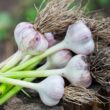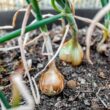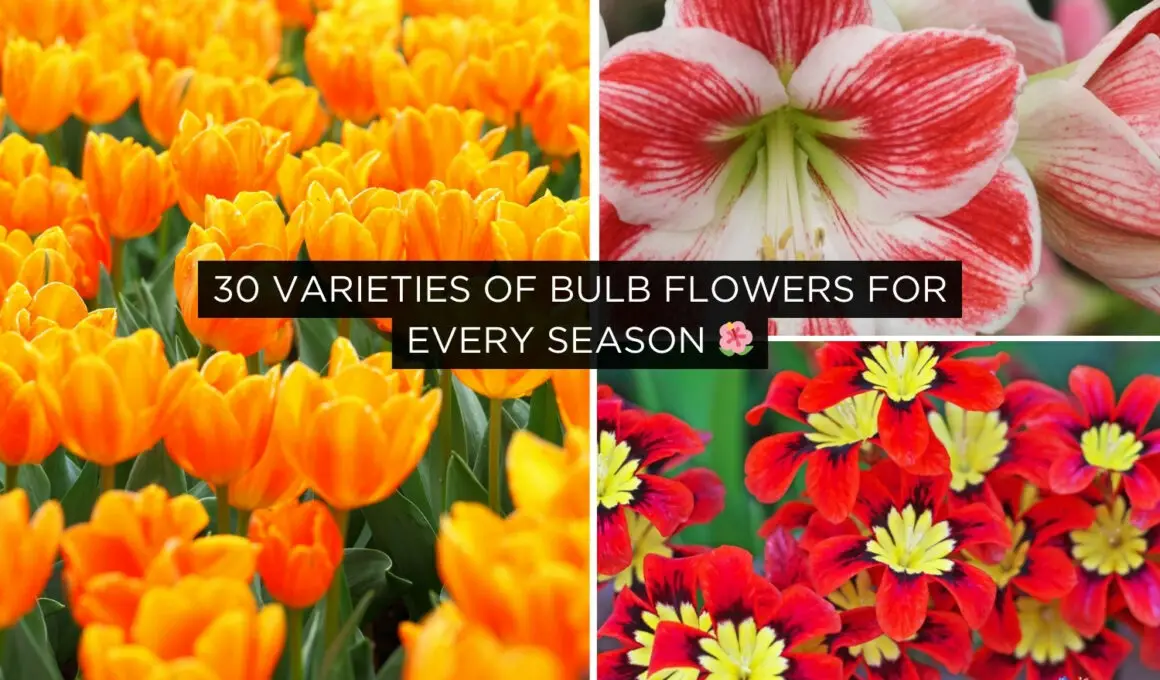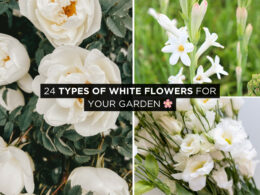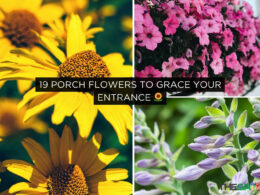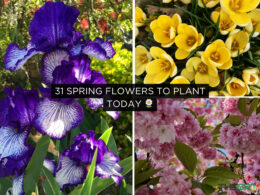In This Article Show
Bulb flowers aren’t just plants but a year-round promise of beauty and resilience. Each season brings its own set of bulbs to the forefront, painting our gardens with their unique palettes and textures. From the cheerful spring tulips that signal warmer days ahead to the hardy amaryllis brightening the shorter days of winter, there’s a bulb flower for every season, waiting to transform your garden.
Bulb gardening is a journey, and like all great journeys, it starts with understanding what you’re working with. If you’ve ever marveled at the burst of color that springs bring or enjoyed the subtle beauty of winter blooms, you know that bulb flowers hold a special place in the hearts of gardeners.
In this post, we’re going to walk through 30 varieties of bulb flowers, carefully curated to ensure your garden remains a spectacle of color and life throughout the year. Whether you’re a seasoned gardener or just starting to plant your first bulbs, there’s something here for everyone. Our goal? To guide you in selecting the right bulb flowers that will thrive in your garden, no matter the season.
Spring-Flowering Bulbs
Spring is a signal for renewal, and what better way to embrace this than with the vibrant hues of spring-flowering bulbs? As the soil thaws, these hardy plants are the first to announce the end of winter, bringing joy and color back to our gardens.
1. Tulips (Tulipa spp.)
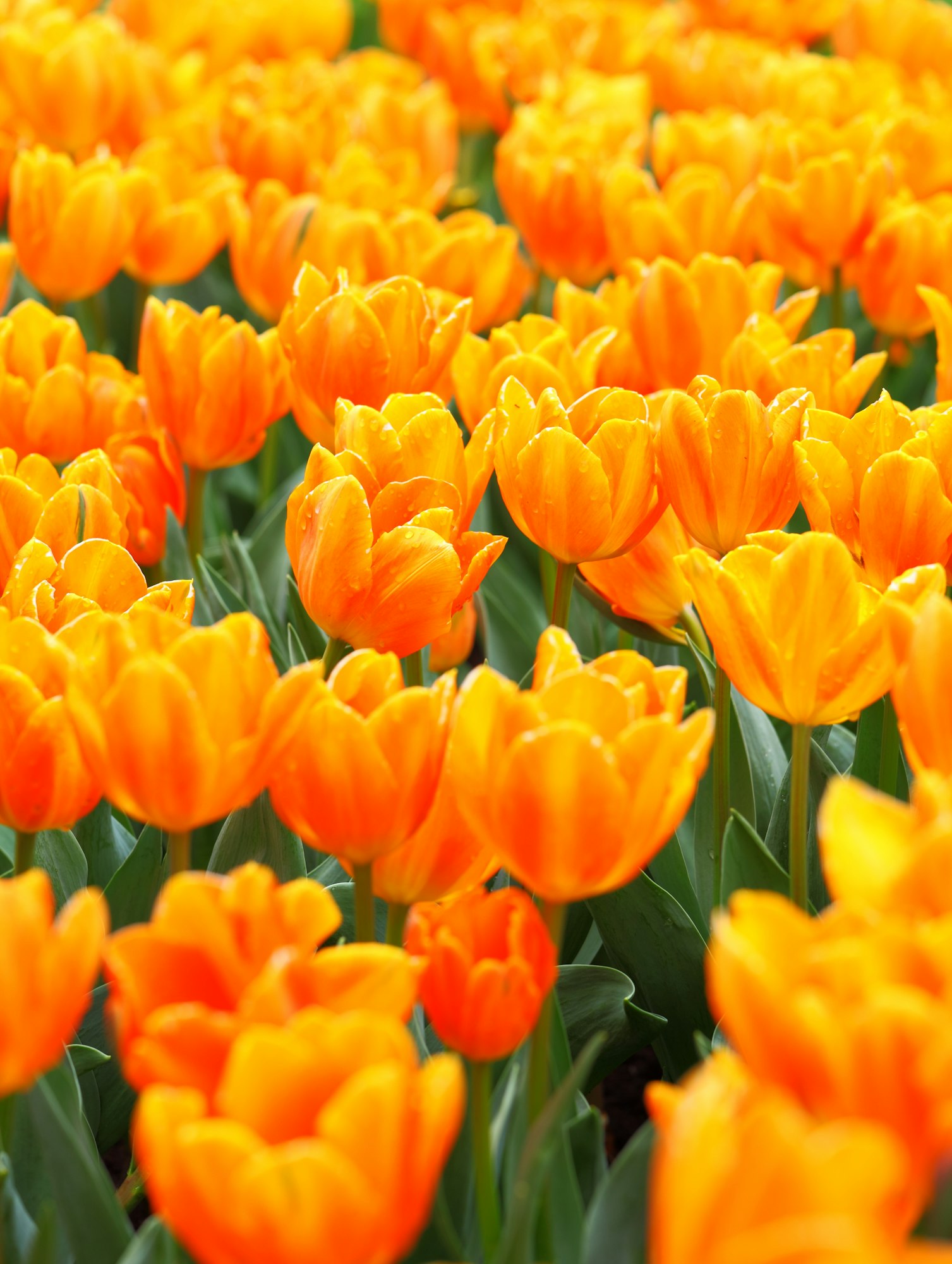
Perhaps the most iconic of spring flowers, tulips come in a rainbow of colors and shapes. They’re versatile, thriving in borders or pots, and while they’re perennial, many gardeners treat them as annuals for best display.
2. Daffodils (Narcissus spp.)
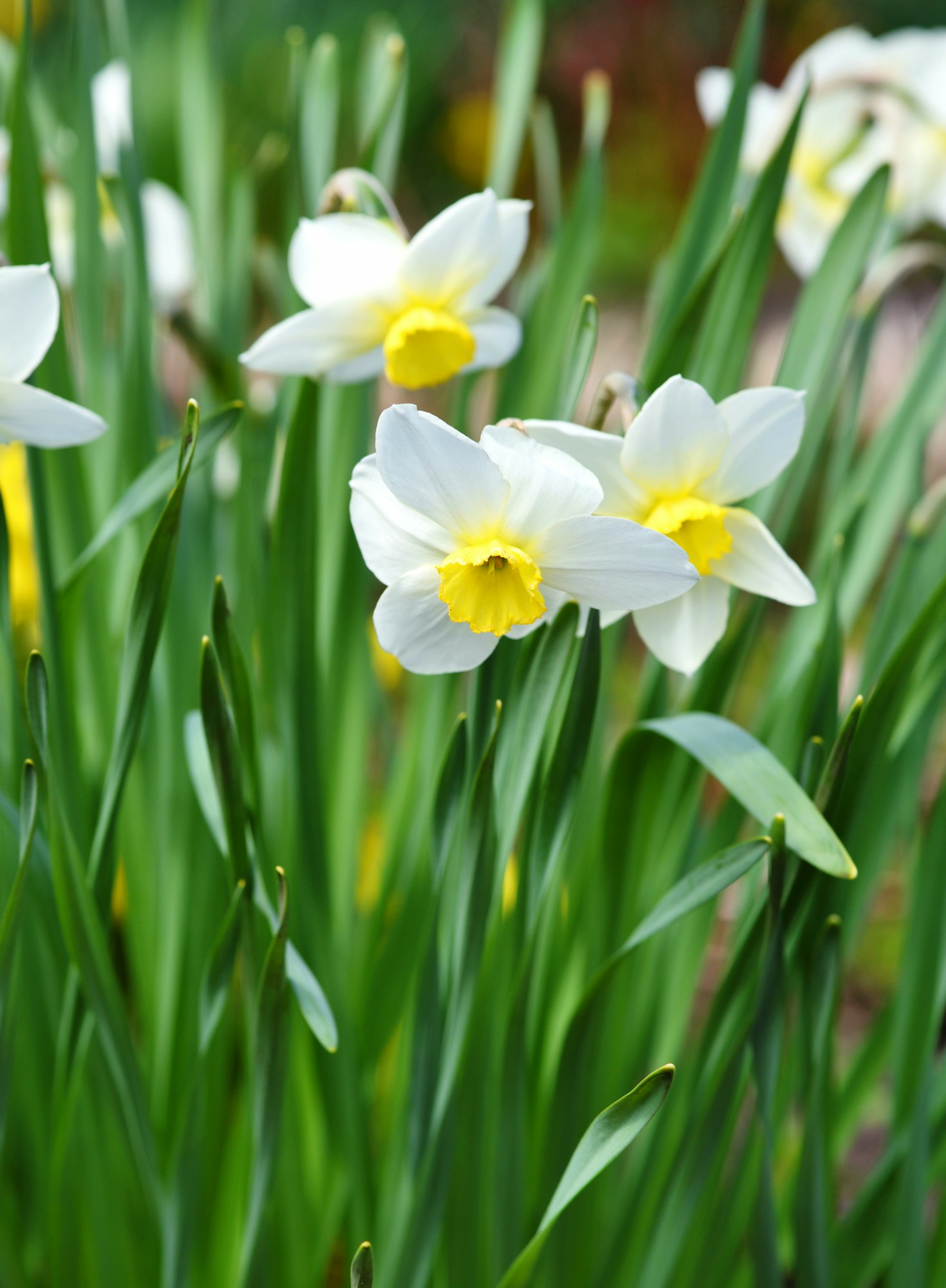
Daffodils, with their bright yellow hues, are symbols of spring. These hardy, easy-to-grow bulbs are excellent for naturalizing in lawns or under trees, promising a bigger display each year.
Get Gardening For Beginners
Our new EBOOK shows newcomers and green thumbs alike a step by step guide to growing the garden of their dreams.
3. Hyacinths (Hyacinthus orientalis)
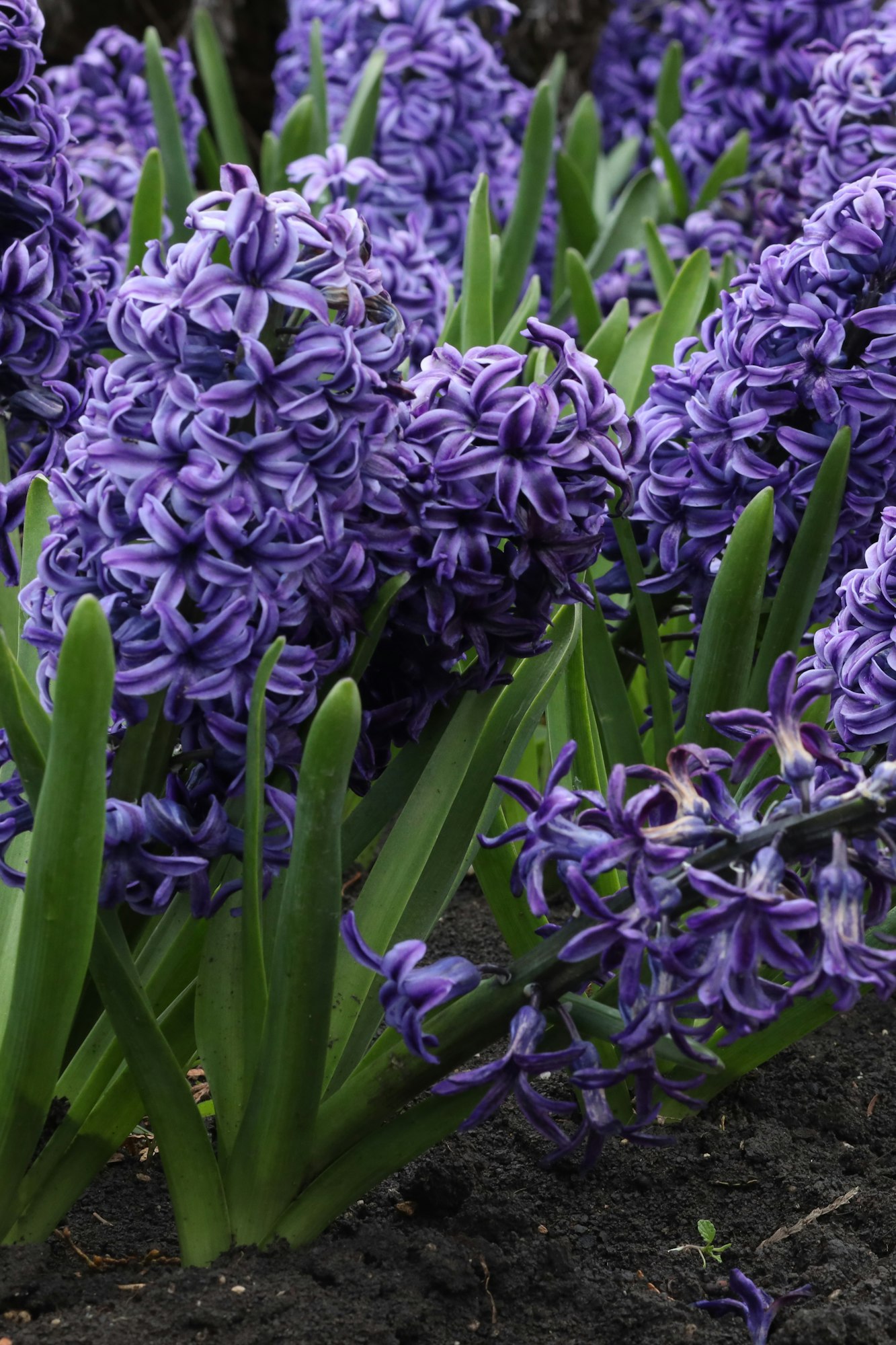
Hyacinths bring not only color but also fragrance to the early spring garden. Their dense flower spikes come in beautiful blues, pinks, and whites. Plant them where you can enjoy their scent regularly!
4. Crocuses (Crocus spp.)
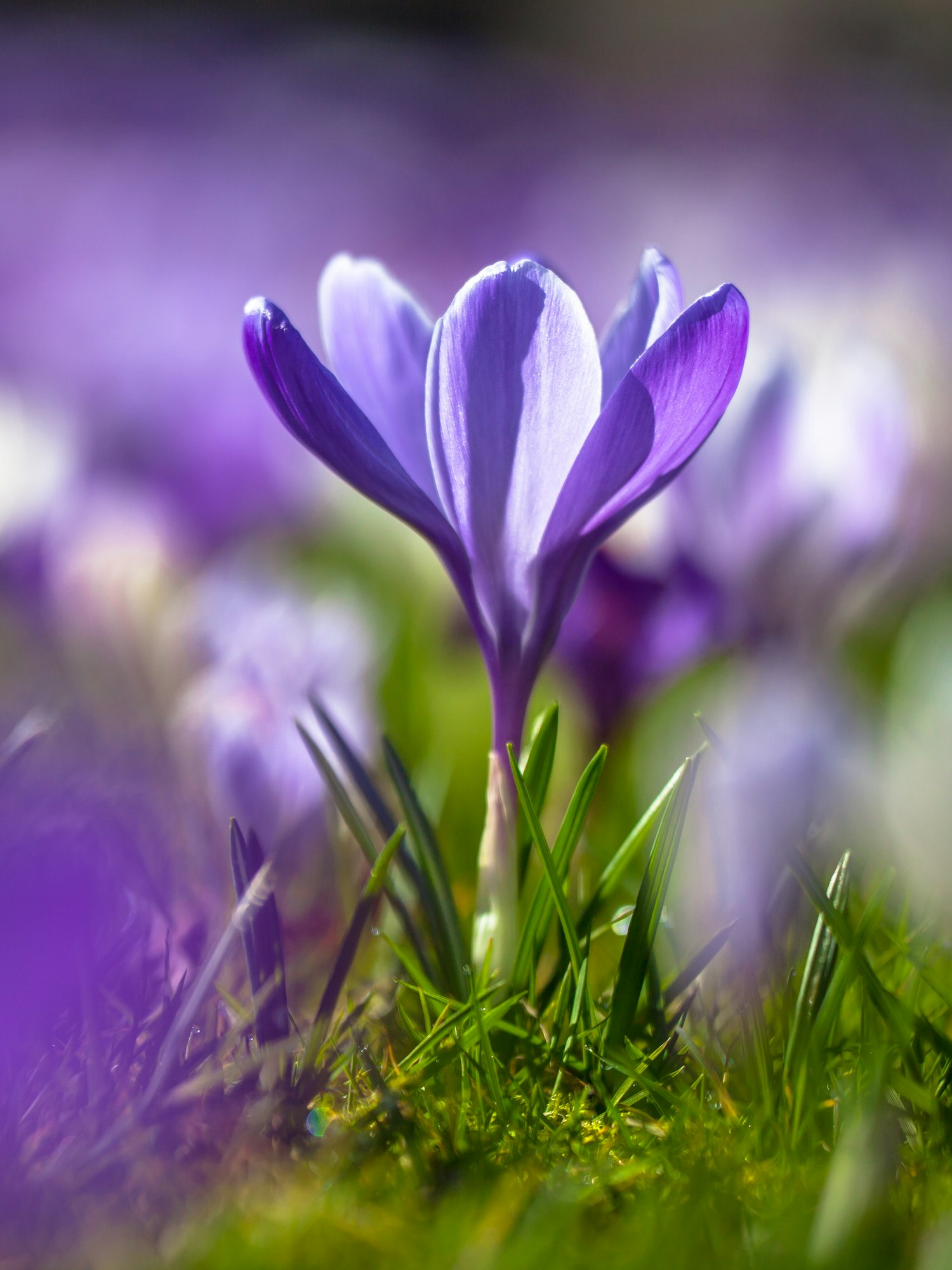
One of the first to bloom, crocuses push through the snow to provide early nectar for bees. These small but mighty flowers come in various colors, perfect for rock gardens or lawns.
5. Snowdrops (Galanthus nivalis)
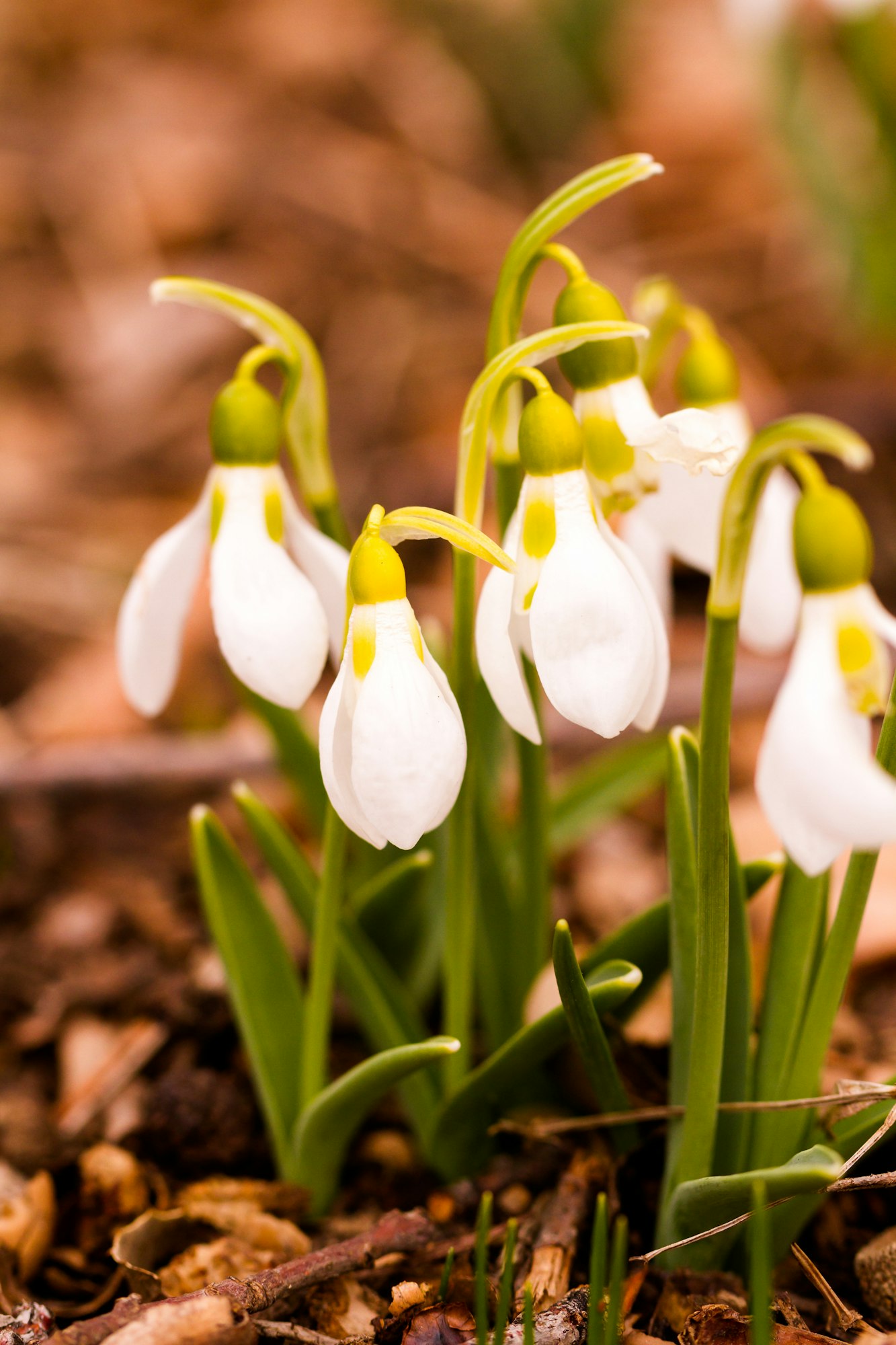
True to their name, snowdrops can bloom even in snow, offering delicate white flowers that symbolize hope. They prefer shady spots and can naturalize to form impressive carpets over time.
6. Iris Reticulata
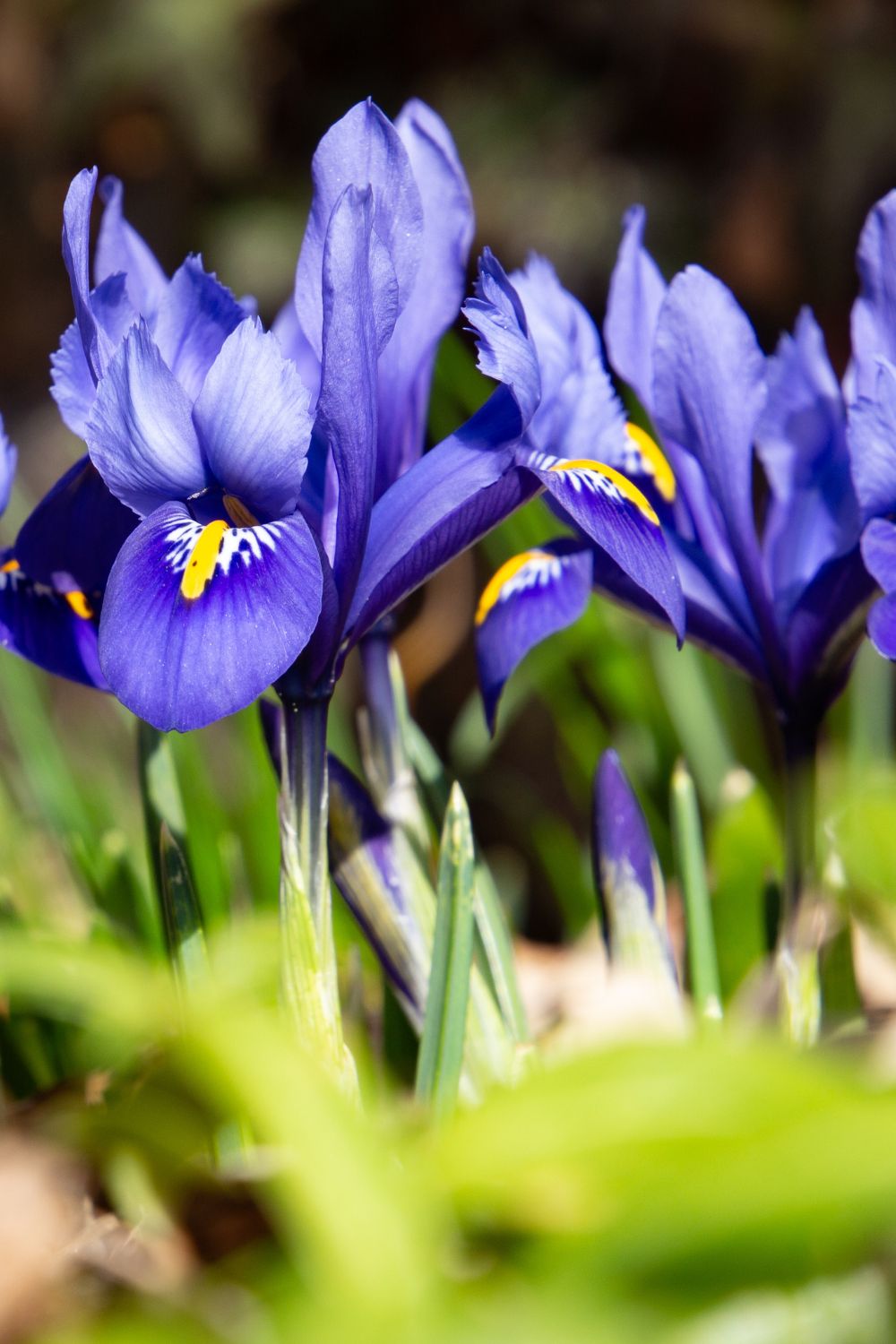
With their strikingly colorful petals, dwarf irises are a welcome addition to the early spring garden. They flourish in well-drained soil and can add a splash of color to rockeries and borders.
7. Scilla Siberica
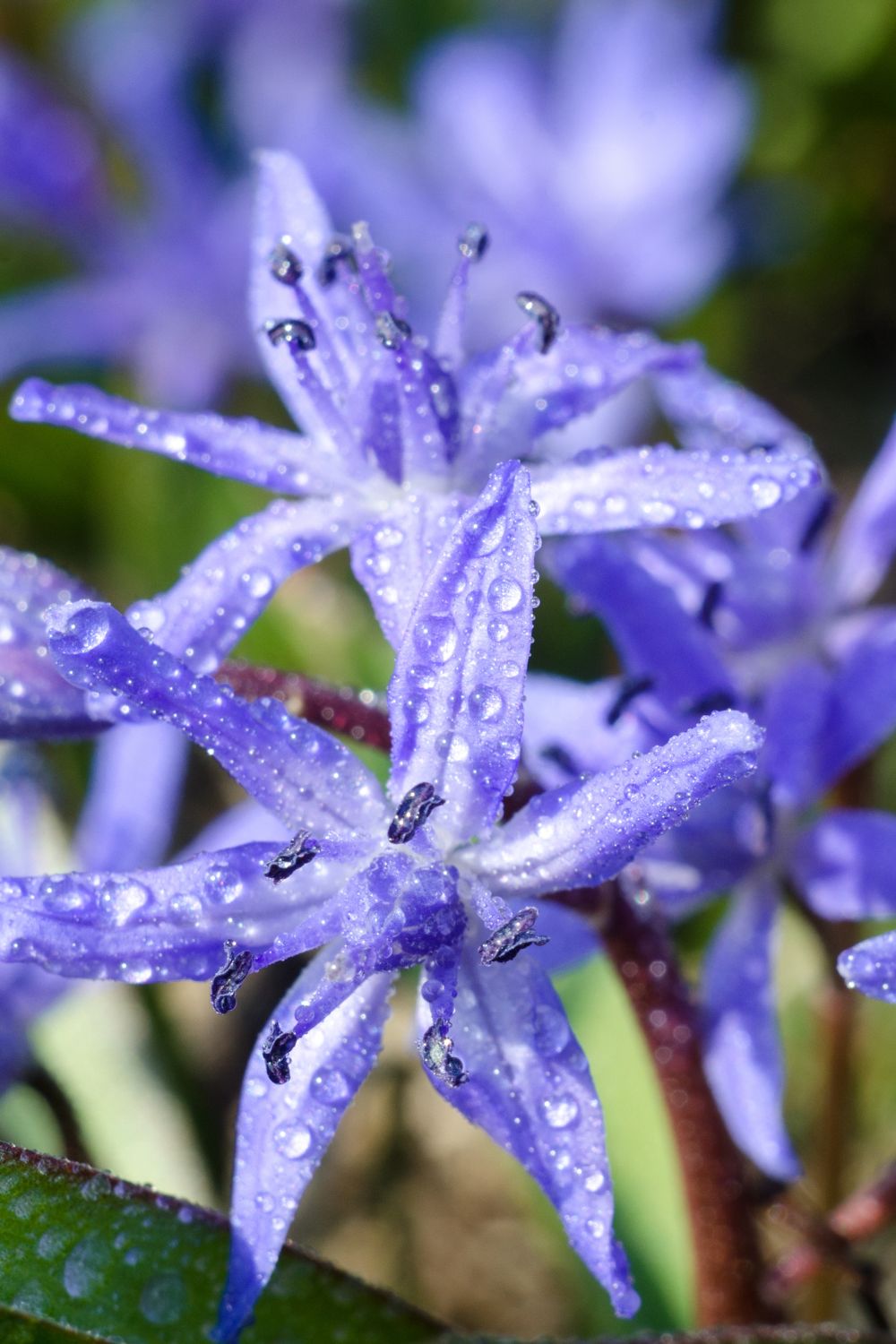
Also known as Siberian squill, these vibrant blue flowers are excellent for naturalizing in grassy areas or under trees. They’re unassuming, easy to grow, and form beautiful blue carpets.
Summer-Flowering Bulbs
As spring bulbs fade, summer varieties take the stage, ensuring your garden remains a feast for the eyes and the senses.
8. Lilies (Lilium spp.)
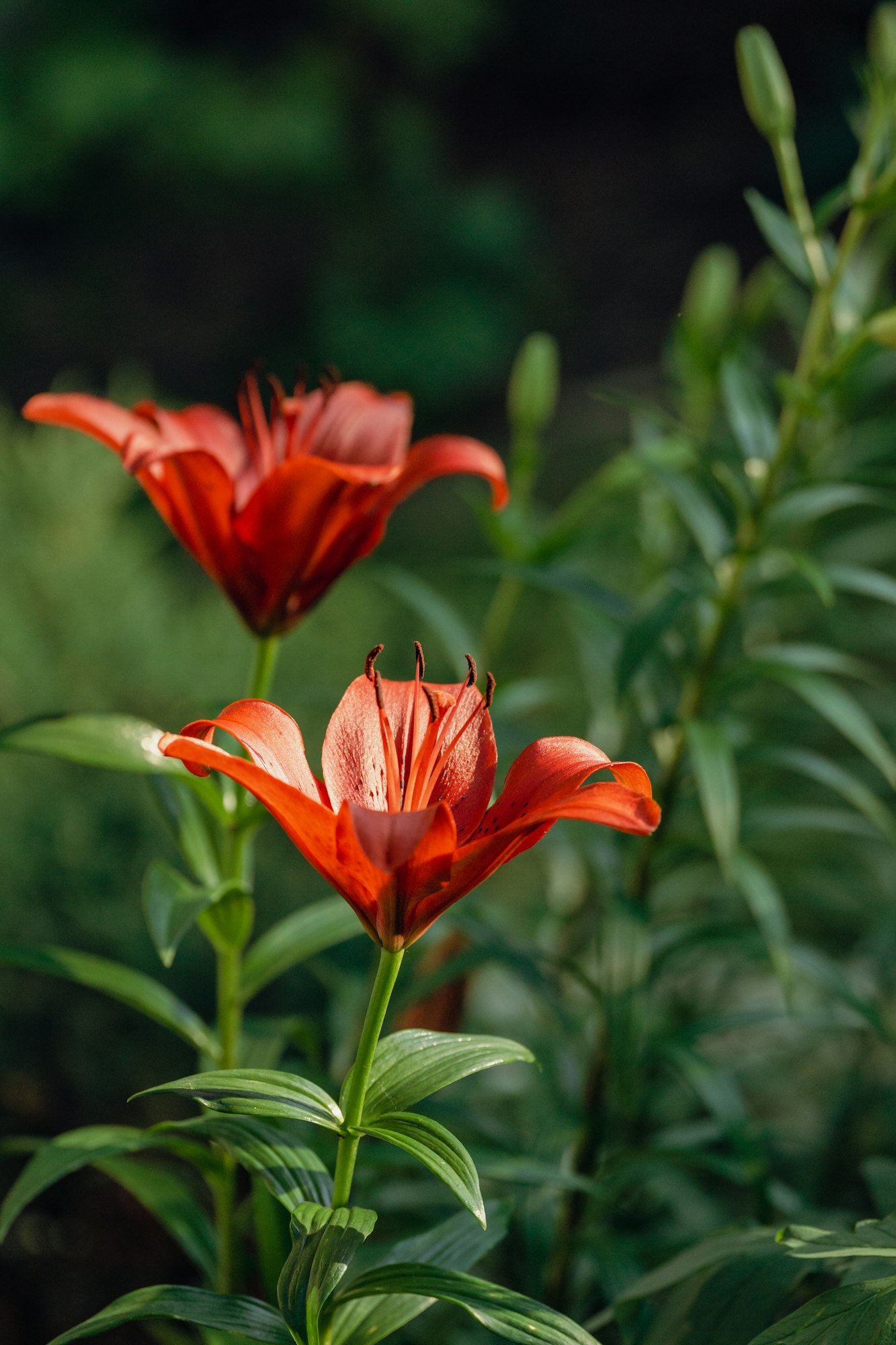
Lilies offer elegance and fragrance, with blooms that range from trumpets to bowls. They’re perfect for borders and containers, demanding well-drained soil and some patience, as many take two years to flower.
Get Gardening For Beginners
Our new EBOOK shows newcomers and green thumbs alike a step by step guide to growing the garden of their dreams.
9. Gladiolus (Gladiolus spp.)
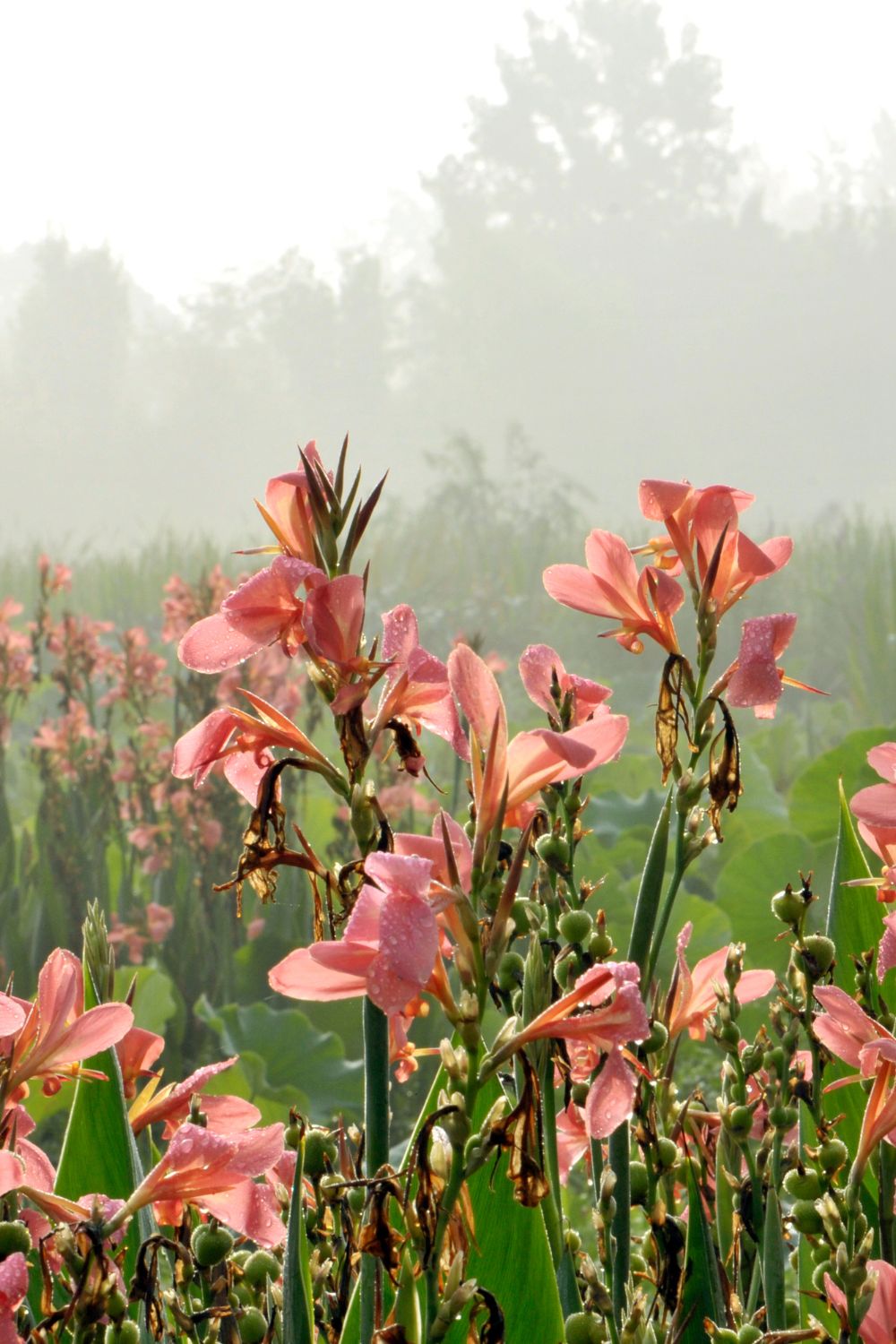
Tall and majestic, gladioli are the showstoppers of the summer garden. Their impressive spikes of flowers come in almost every color and are ideal for cutting gardens.
10. Dahlias (Dahlia spp.)
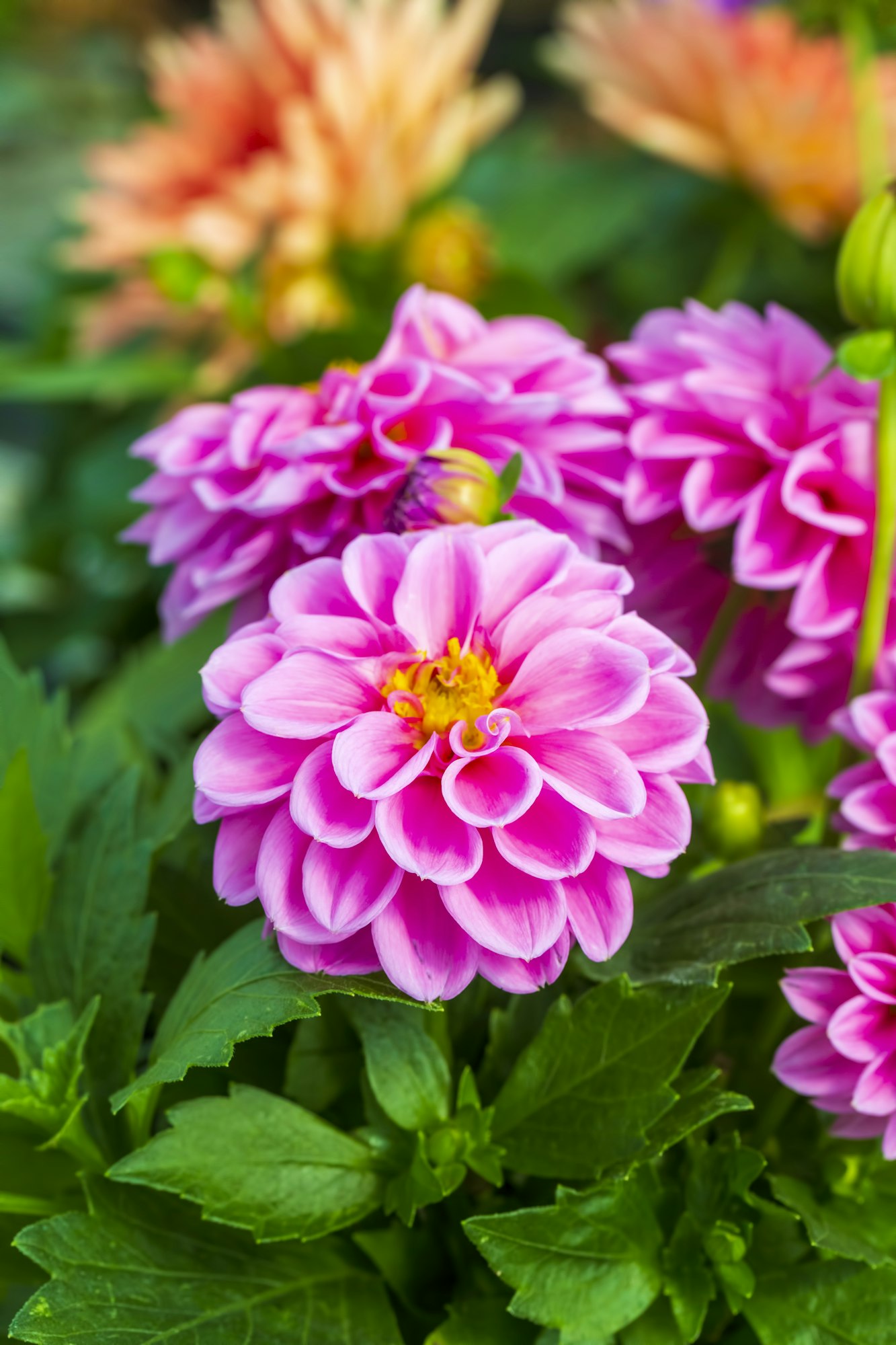
With their wide range of sizes and vibrant colors, dahlias are versatile stars of the late summer garden. They need sunny spots and protection from strong winds.
11. Alliums (Allium spp.)
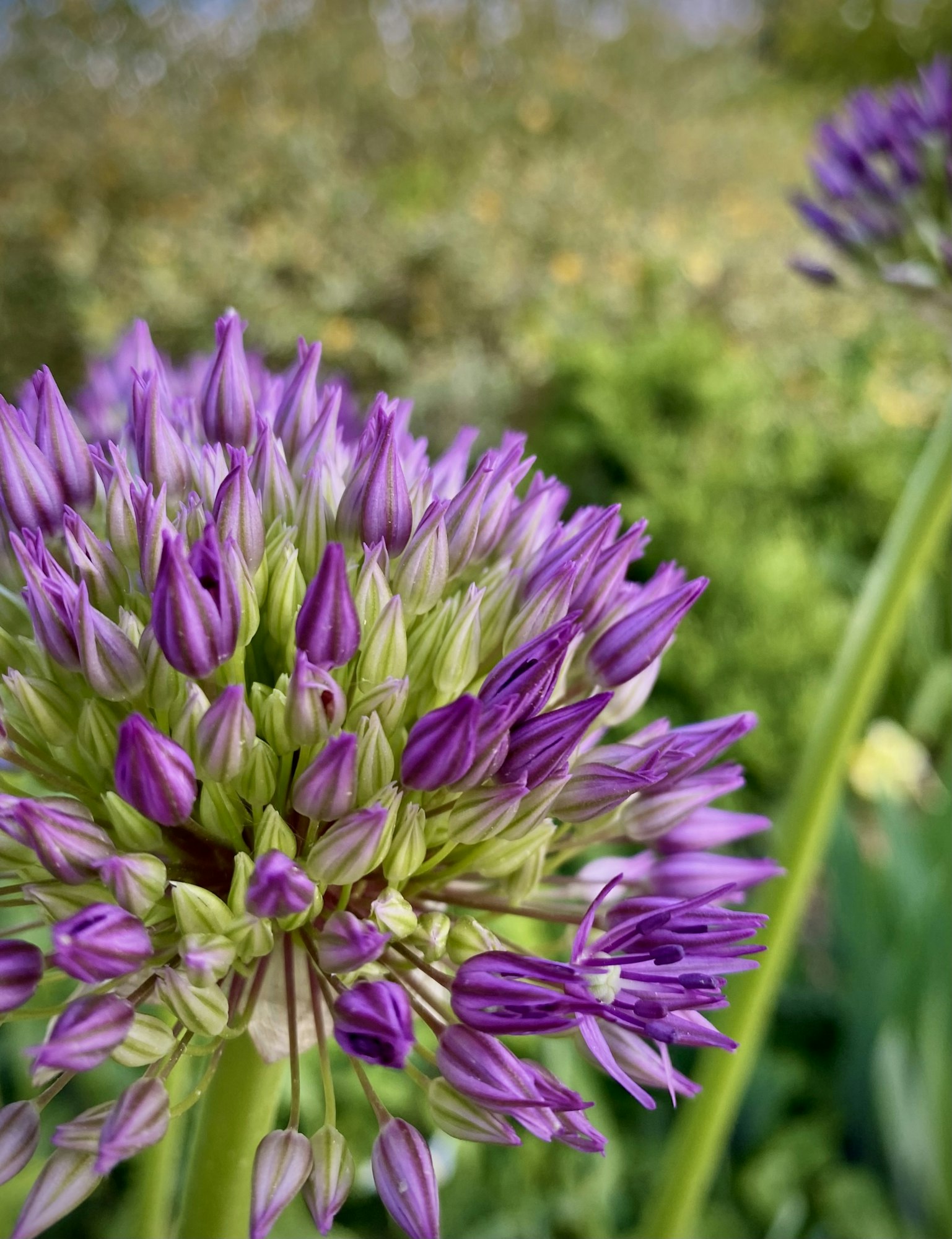
Alliums, with their distinctive spherical blooms, add architectural interest. These easy-care bulbs are perfect for a sunny border and attract pollinators.
12. Calla Lilies (Zantedeschia spp.)
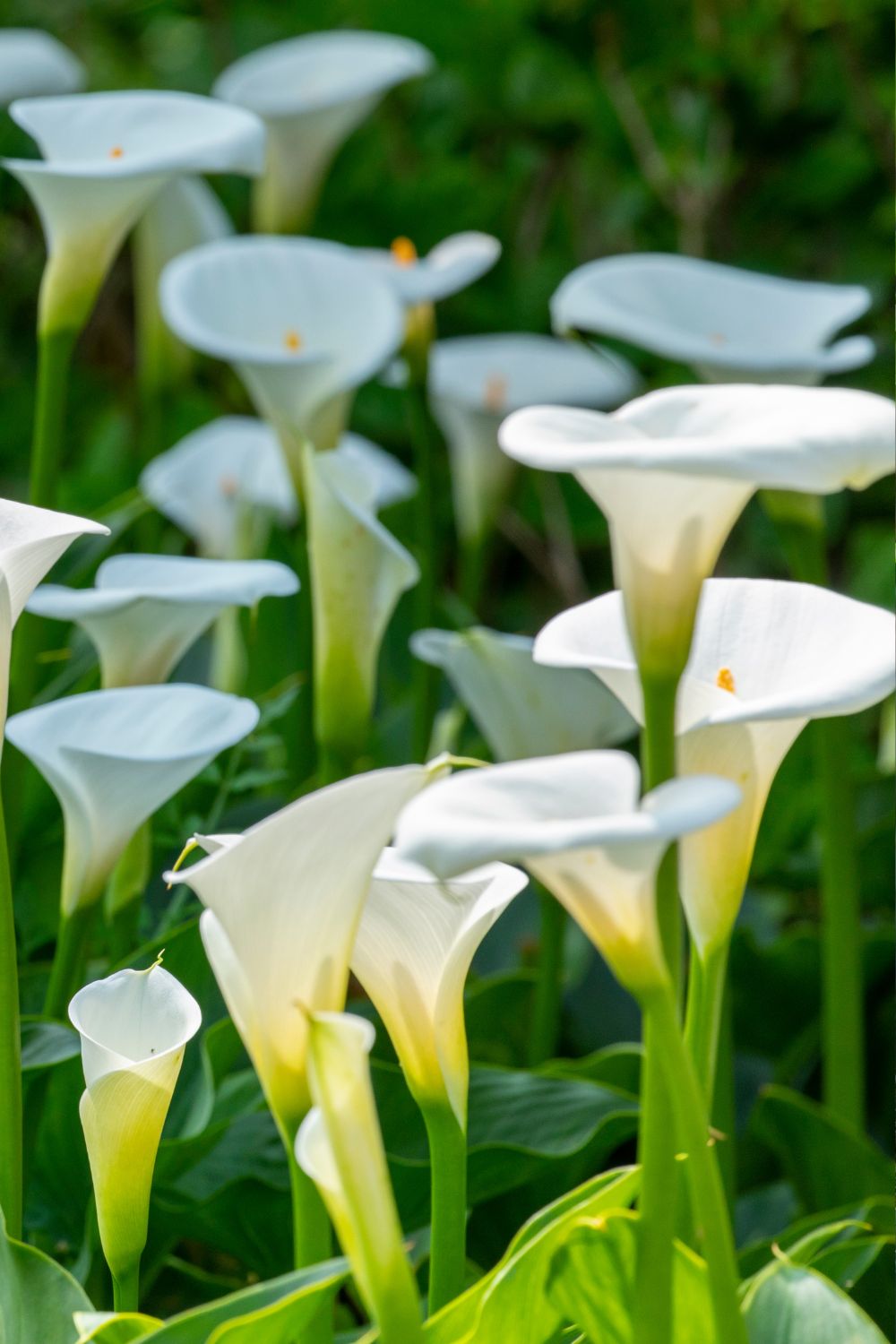
Elegant and sophisticated, calla lilies feature trumpet-shaped flowers in various colors. They love moist, well-drained soil and can even grow in water gardens.
13. Begonias (Begonia spp.)
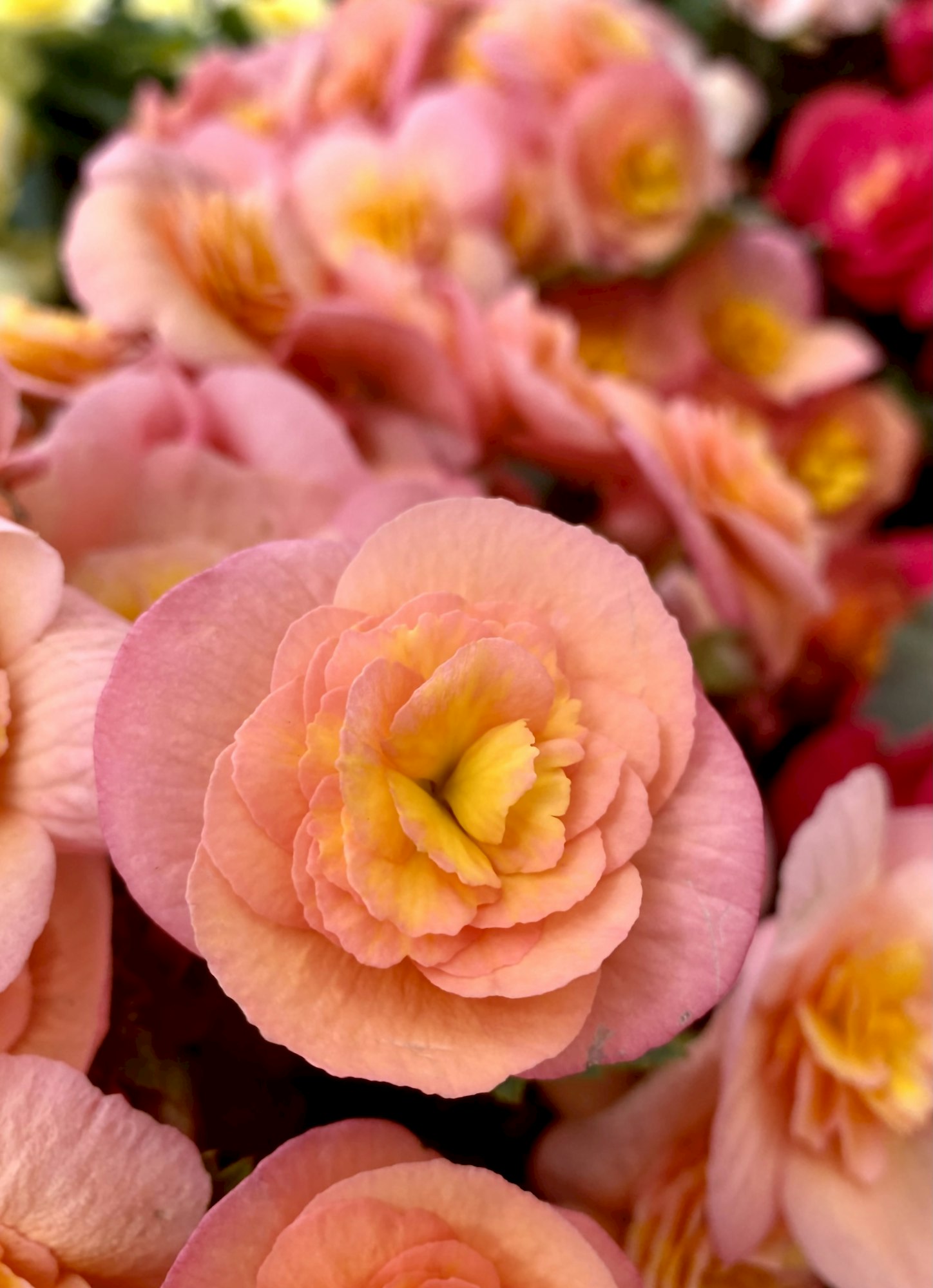
Ideal for shady spots, begonias bloom throughout the summer into fall, offering vibrant colors and lush foliage. They’re perfect for containers and hanging baskets.
14. Freesias (Freesia spp.)
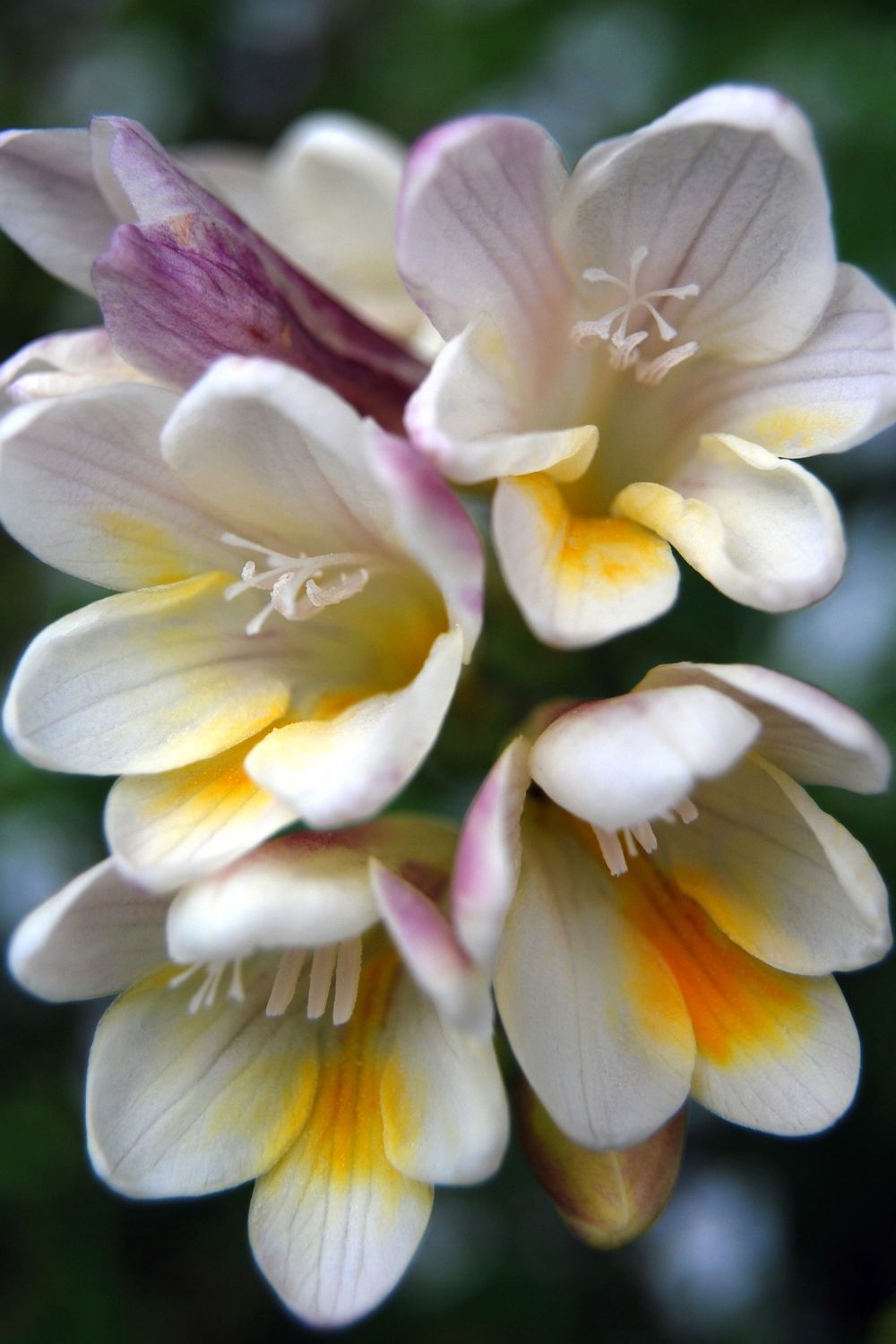
Freesias are cherished for their zesty fragrance and colorful, delicate blooms. They thrive in cool, mild climates and can brighten up any summer garden or bouquet.
Autumn-Flowering Bulbs
Autumn doesn’t mean the end of vibrant displays in the garden. These bulb flowers bring life and color just as other plants start to retreat.
15. Autumn Crocus (Colchicum autumnale)
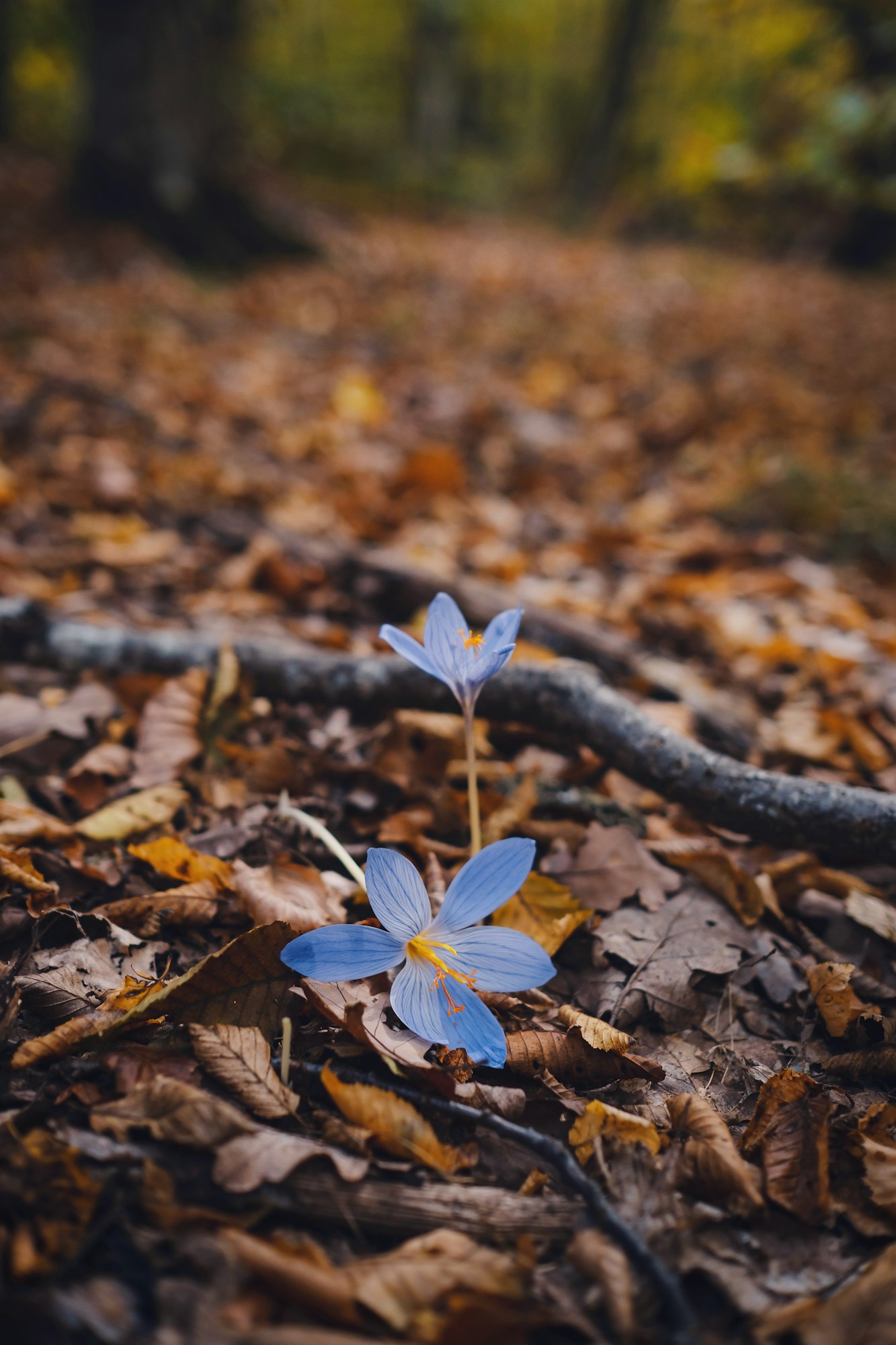
Mistaken often for its spring counterpart, the autumn crocus offers a surprise with its late-year blooms. These flowers emerge in purples and whites, perfect for adding unexpected bursts of color.
16. Nerine (Nerine spp.)
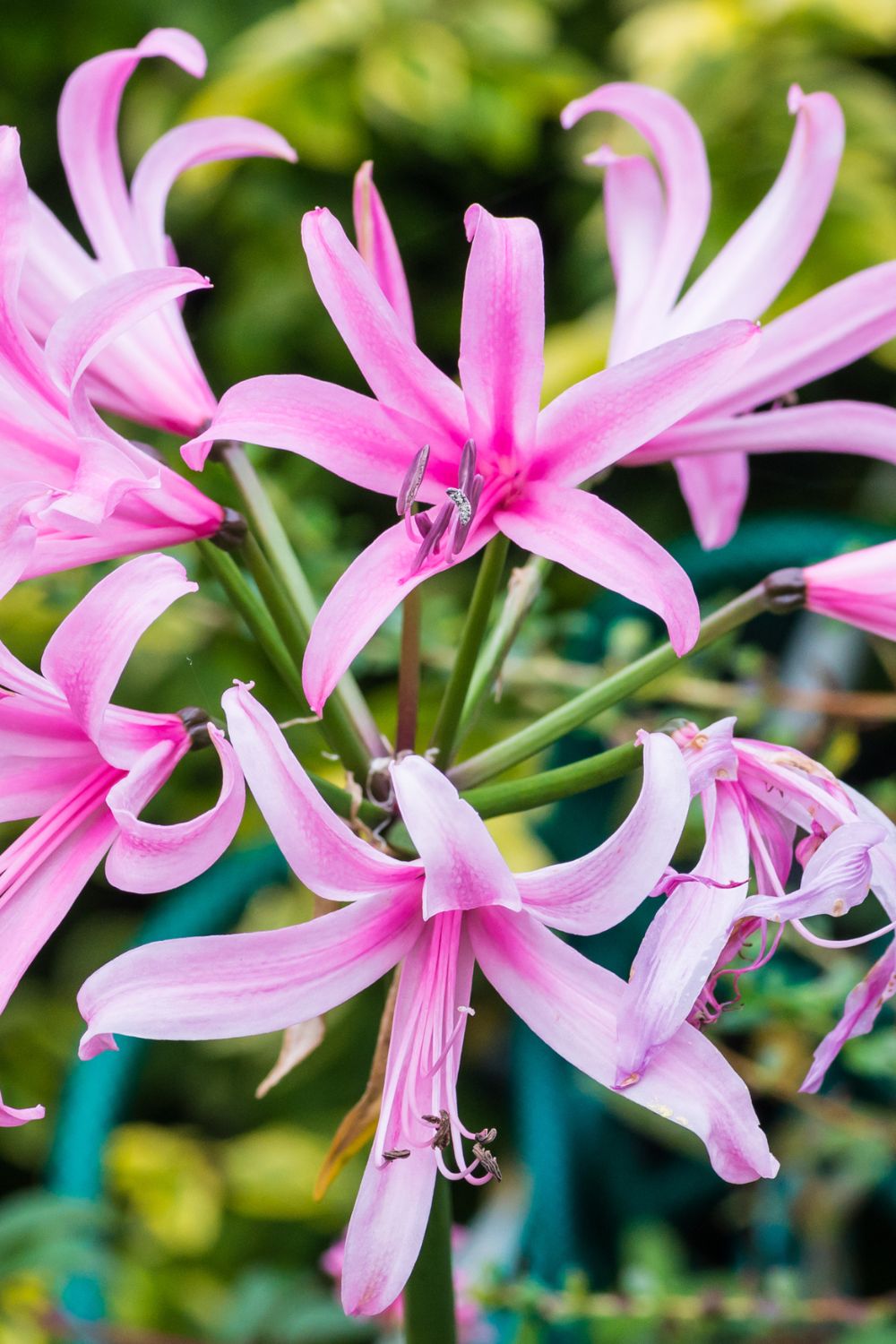
Nerines dazzle with their spider-like blooms in shades of pink and red. They prefer sunny spots with well-drained soil, making a striking statement in borders and pots.
17. Sternbergia (Sternbergia spp.)
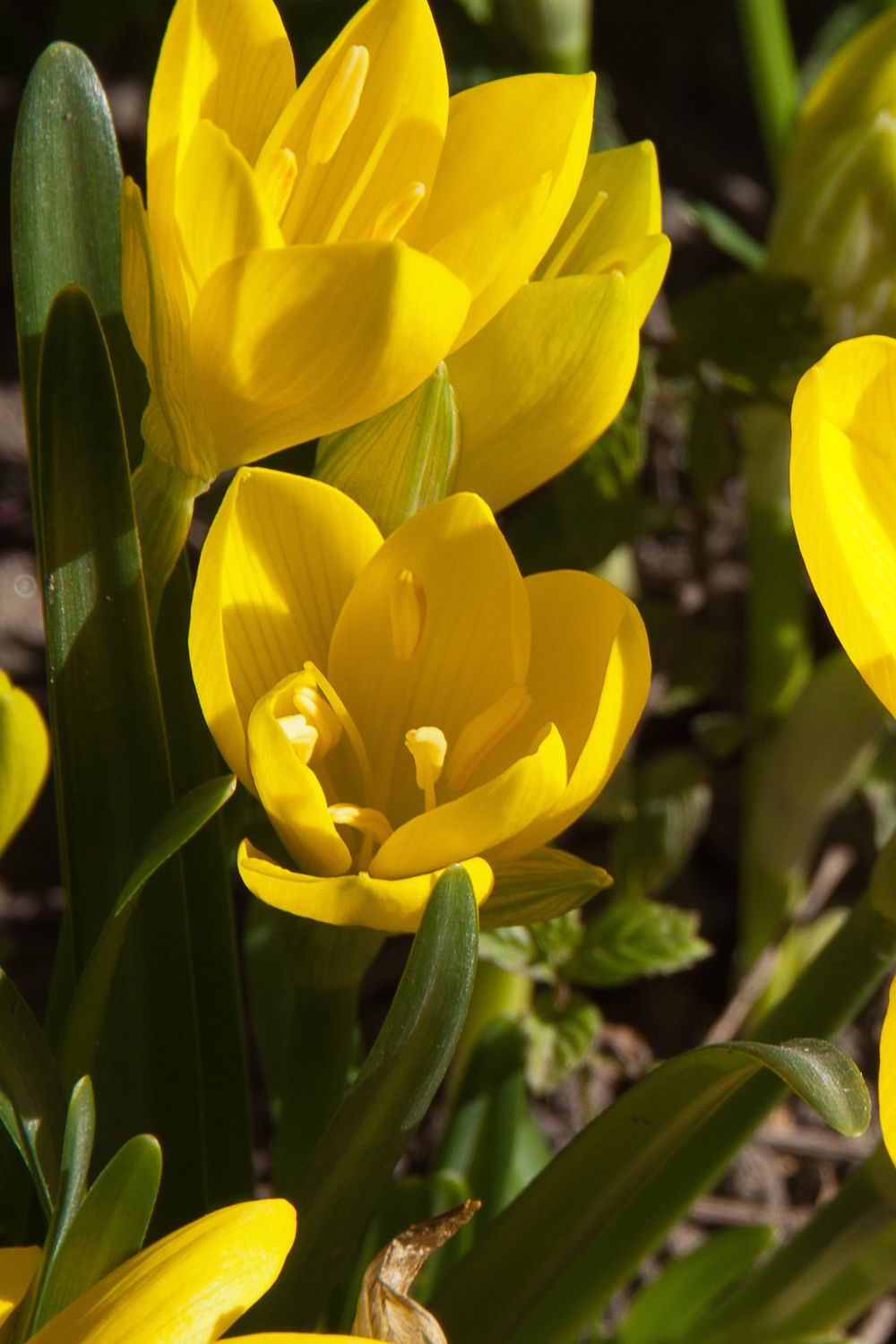
Often called the autumn daffodil, Sternbergia lutea produces bright yellow flowers that resemble their spring relatives. They thrive in sunny, well-drained spots, adding warmth to the cooling days.
18. Cyclamen hederifolium
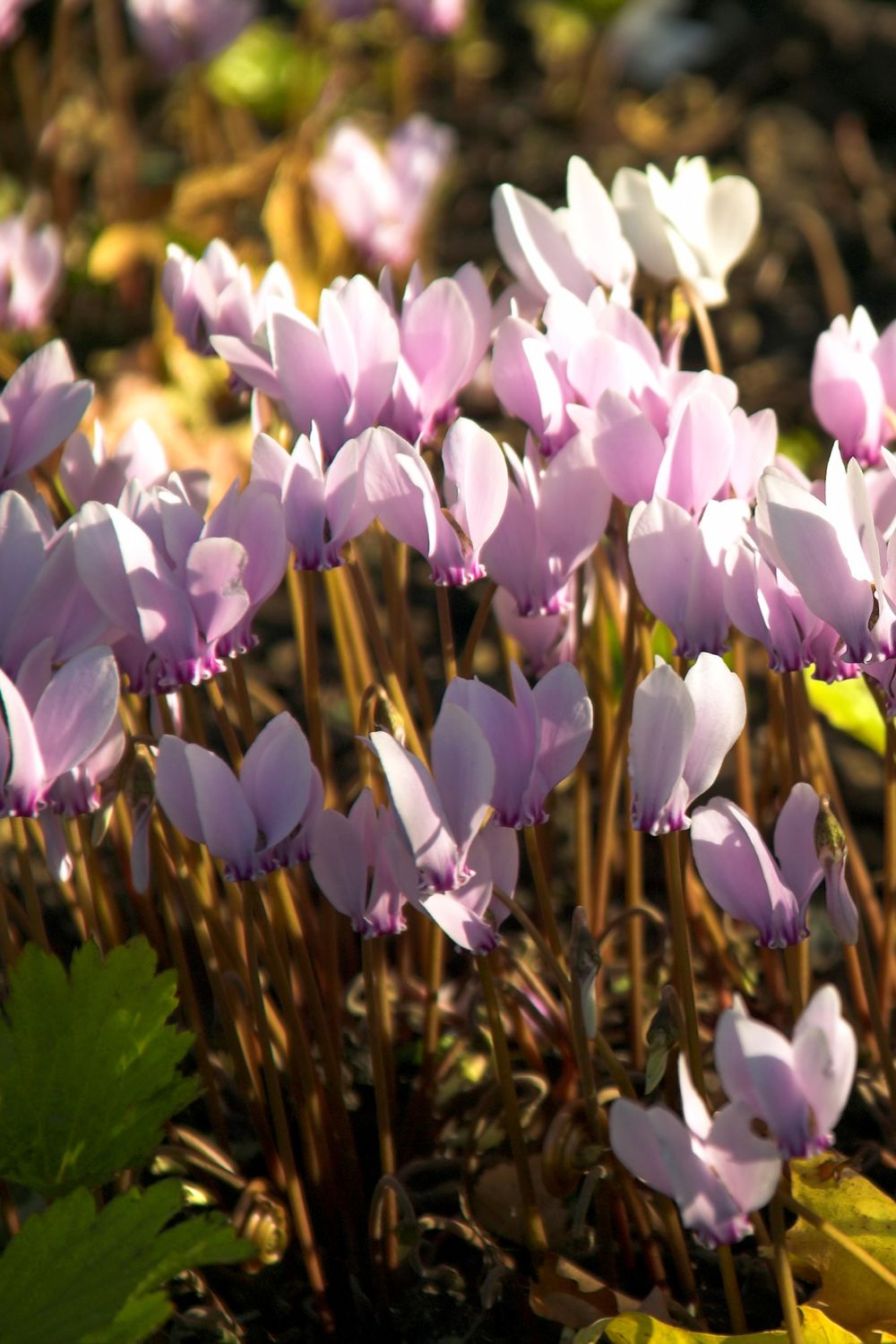
Cyclamen brings delicate beauty to the autumn garden with its silver-marbled leaves and dainty flowers in pink or white. Perfect for shady spots, they pair well with ferns and other woodland plants.
19. Saffron Crocus (Crocus sativus)
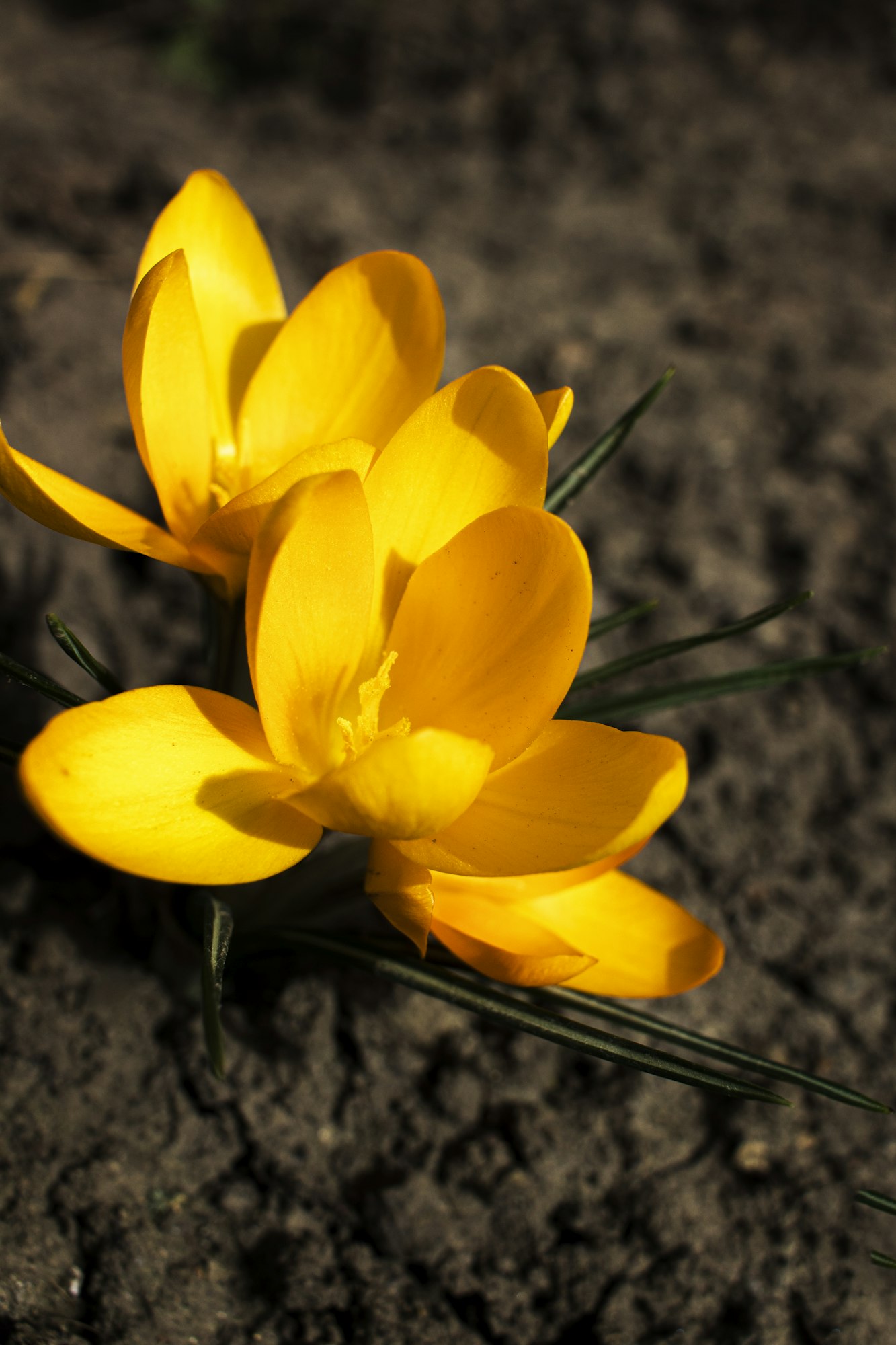
This special crocus not only adds beauty with its purple flowers but also produces saffron, the world’s most expensive spice. It requires a sunny spot and well-drained soil.
20. Colchicum (Colchicum spp.)
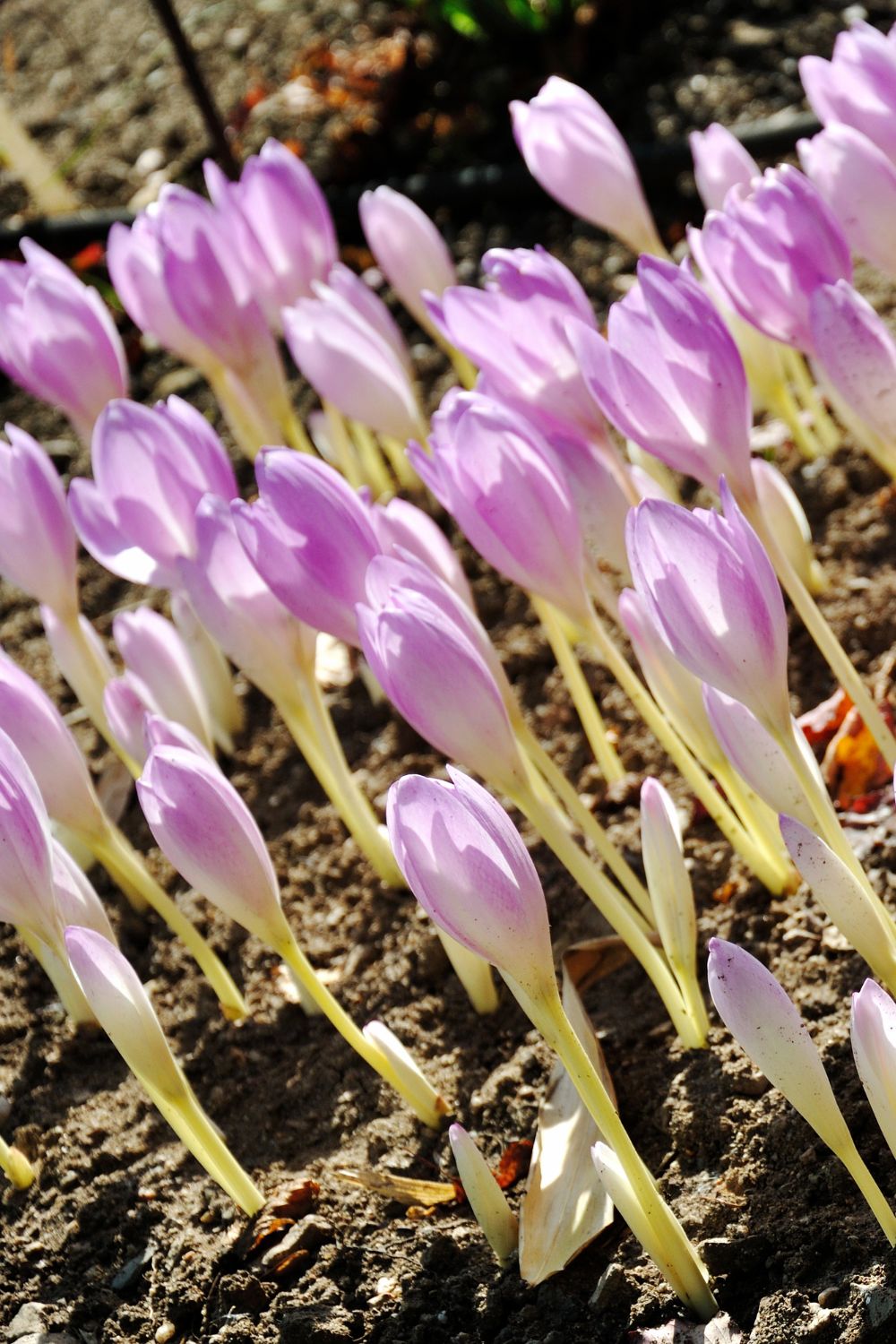
Similar to the autumn crocus but larger, Colchicum bulbs produce vibrant pink or white flowers. They’re easy to grow and work well in borders or naturalized in grass.
Winter-Flowering Bulbs
Even in the depths of winter, these hardy bulbs push through the chill to brighten the garden, proving that life persists even in the coldest months.
21. Amaryllis (Hippeastrum spp.)
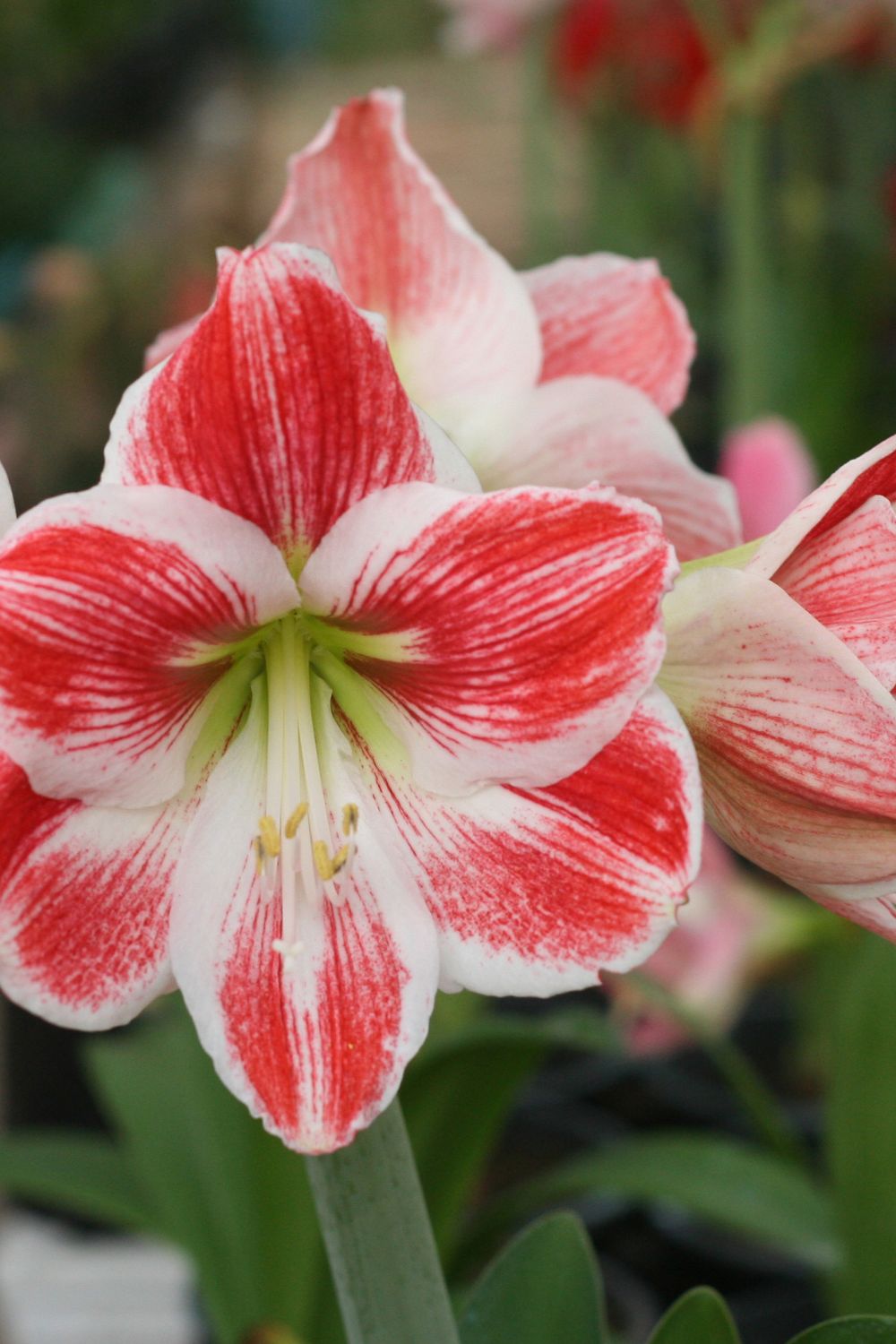
Amaryllis is known for its large, trumpet-shaped flowers that can bring a splash of color indoors during winter. With care, they can bloom year after year.
22. Winter Aconite (Eranthis hyemalis)
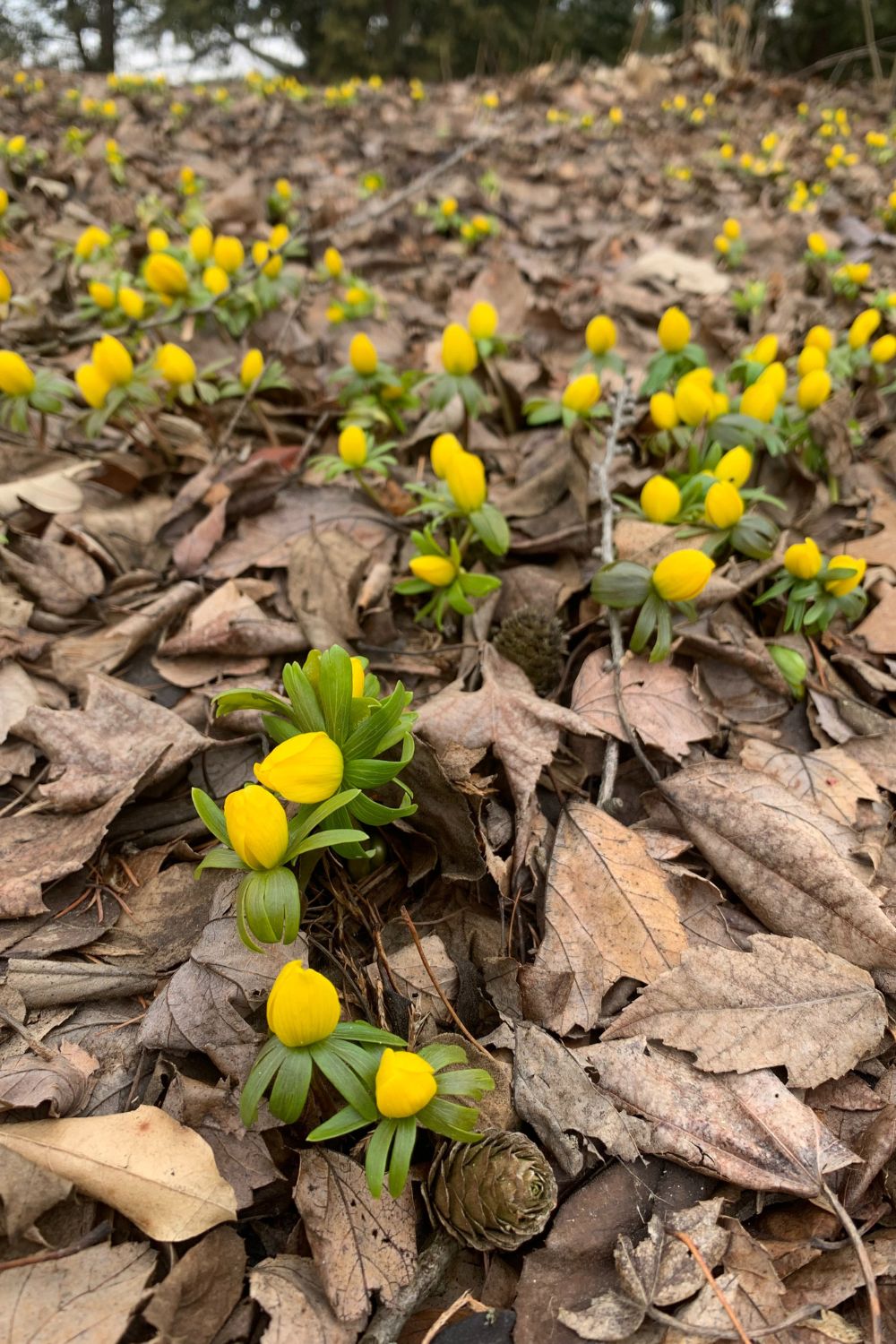
Winter aconite emerges often while snow is still on the ground, with its cheerful yellow flowers warming the heart. It’s perfect for naturalizing under trees or in woodland gardens.
23. Snowflake (Leucojum spp.)
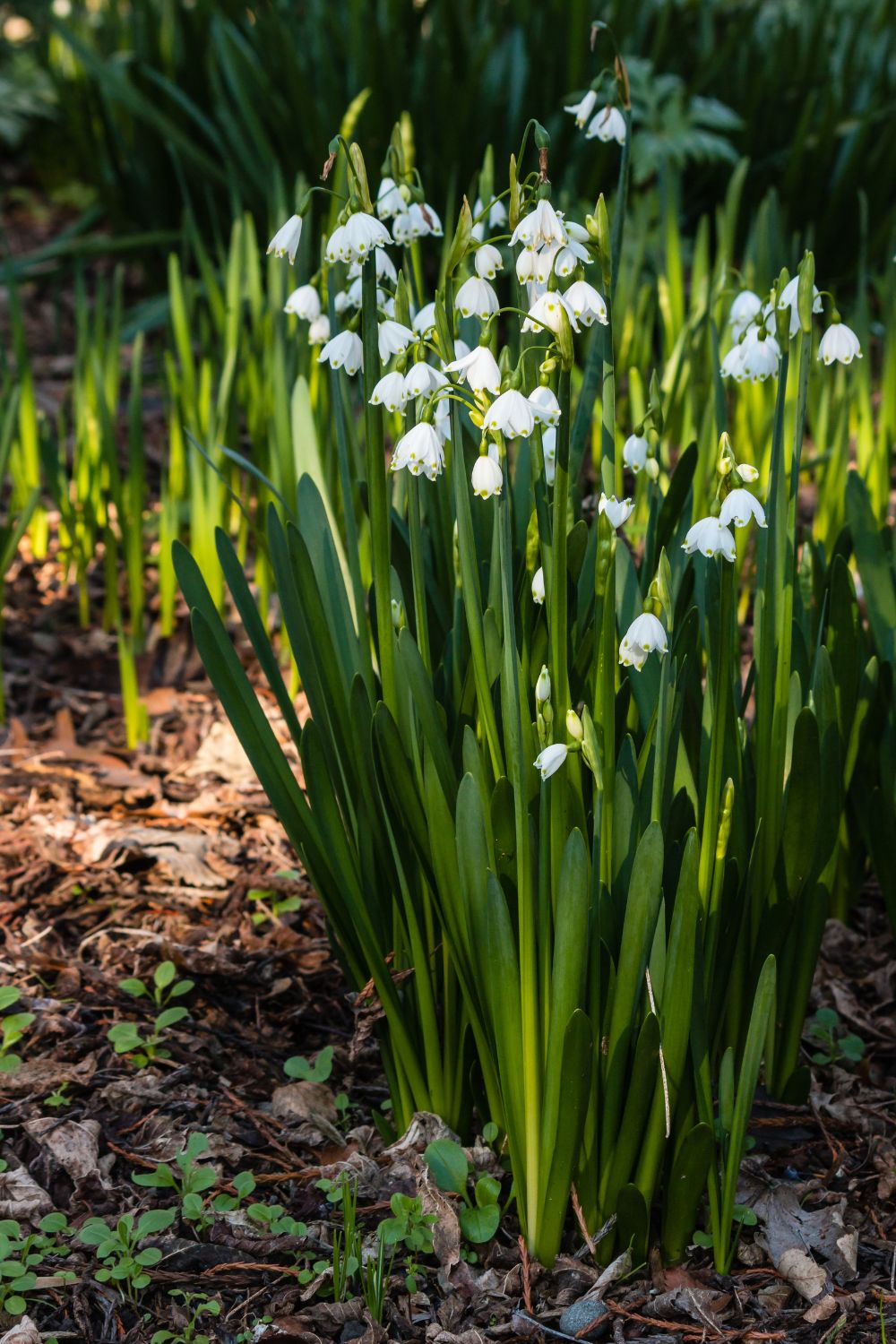
Snowflake, or spring snowflake to differentiate from snowdrops, offers bell-shaped flowers with green dots on each petal tip. They enjoy moist, well-drained soil and light shade.
24. Camassia (Camassia spp.)
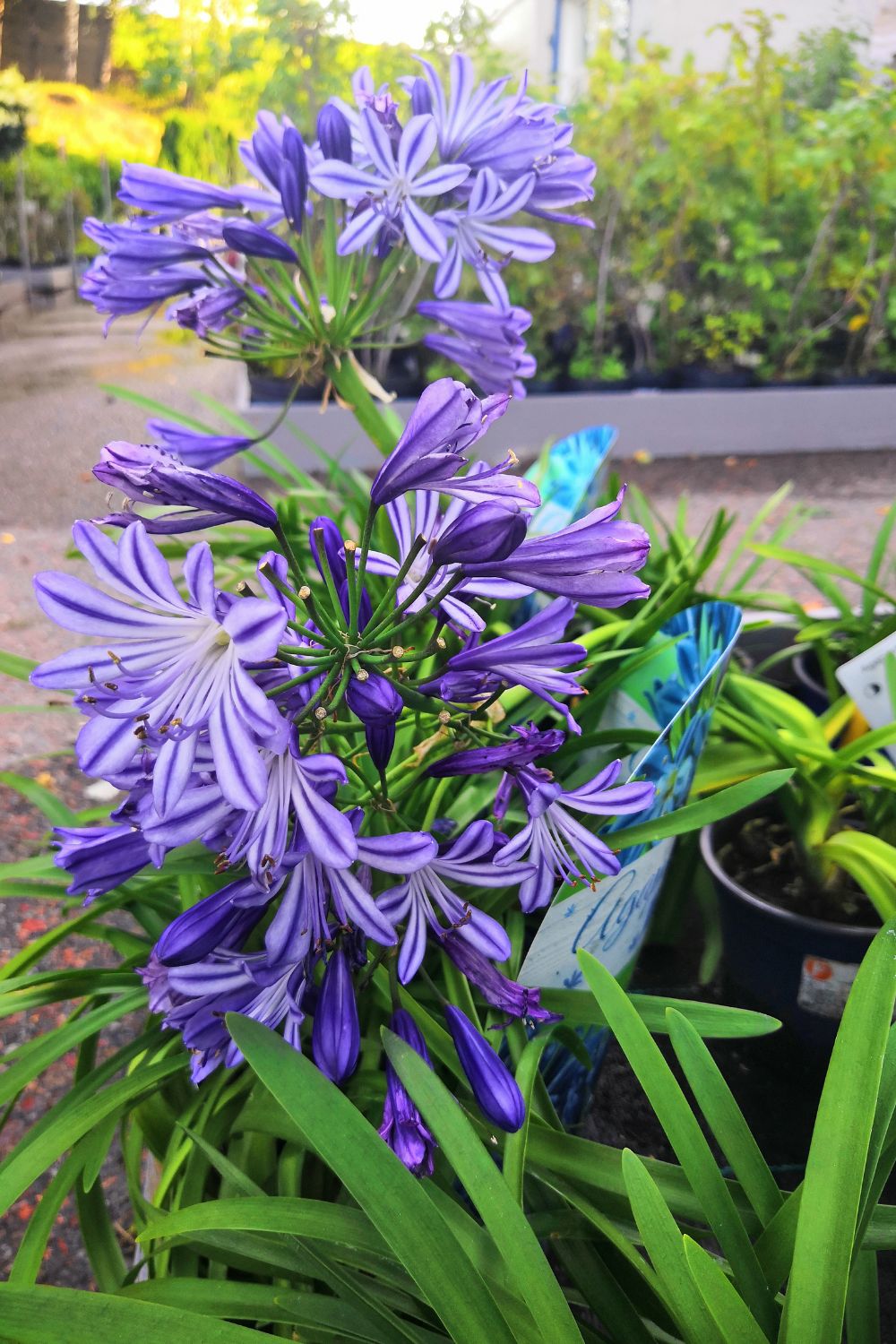
Though often associated with spring, some Camassia species bloom into early summer or late winter, offering spikes of blue or white flowers. They’re perfect for damp meadows or borders.
25. Galanthus (Galanthus spp.)
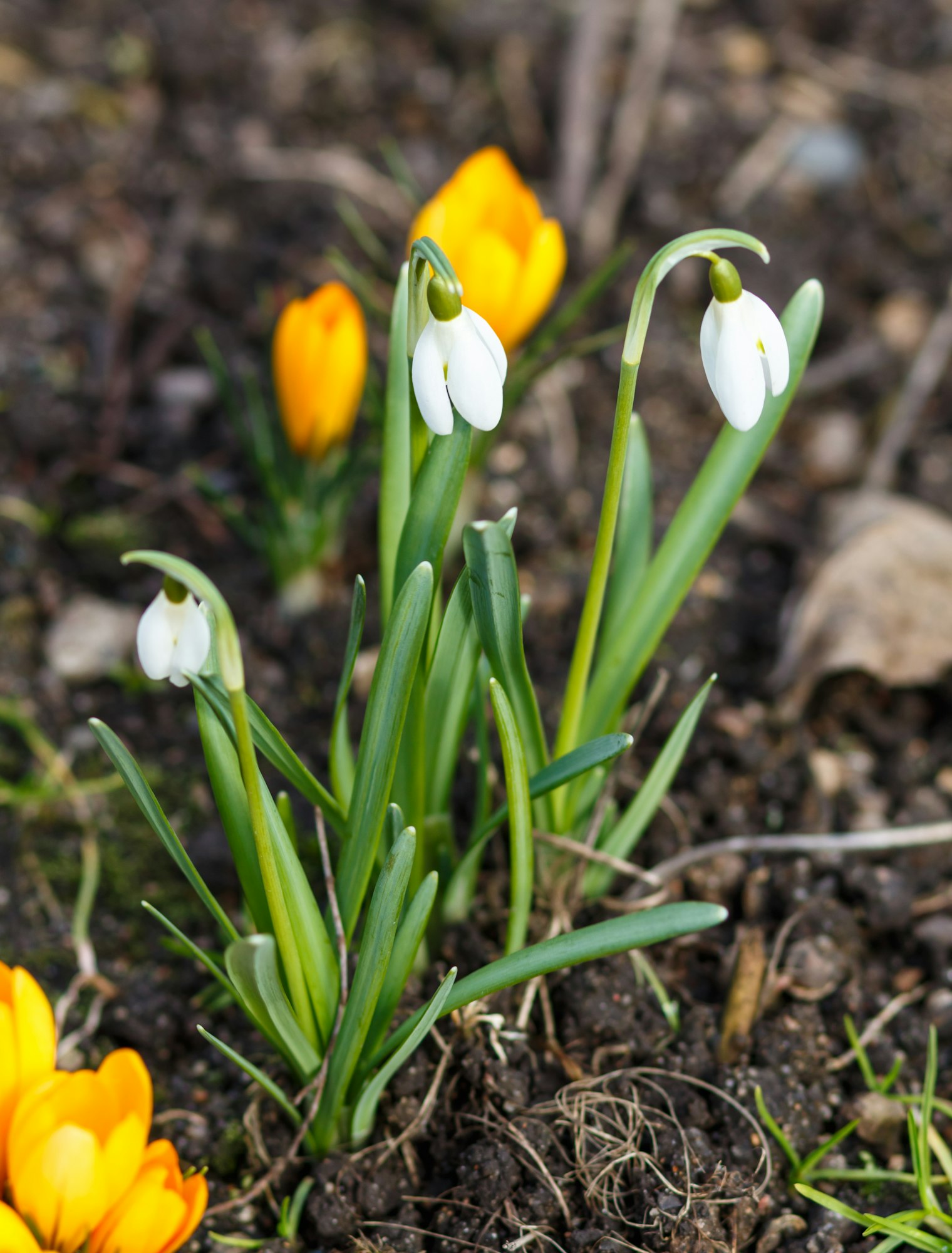
While commonly known as snowdrops and blooming in late winter to early spring, these are the harbingers of the end of cold weather, with delicate drooping white flowers signaling the impending spring.
Year-Round Bulb Flowers
Not all bulb flowers strictly adhere to a seasonal schedule. Some are versatile enough to grace our gardens or homes with their presence almost year-round, depending on how they’re grown. Here are bulb flowers celebrated for their adaptability and enduring charm.
26. Ranunculus (Ranunculus asiaticus)
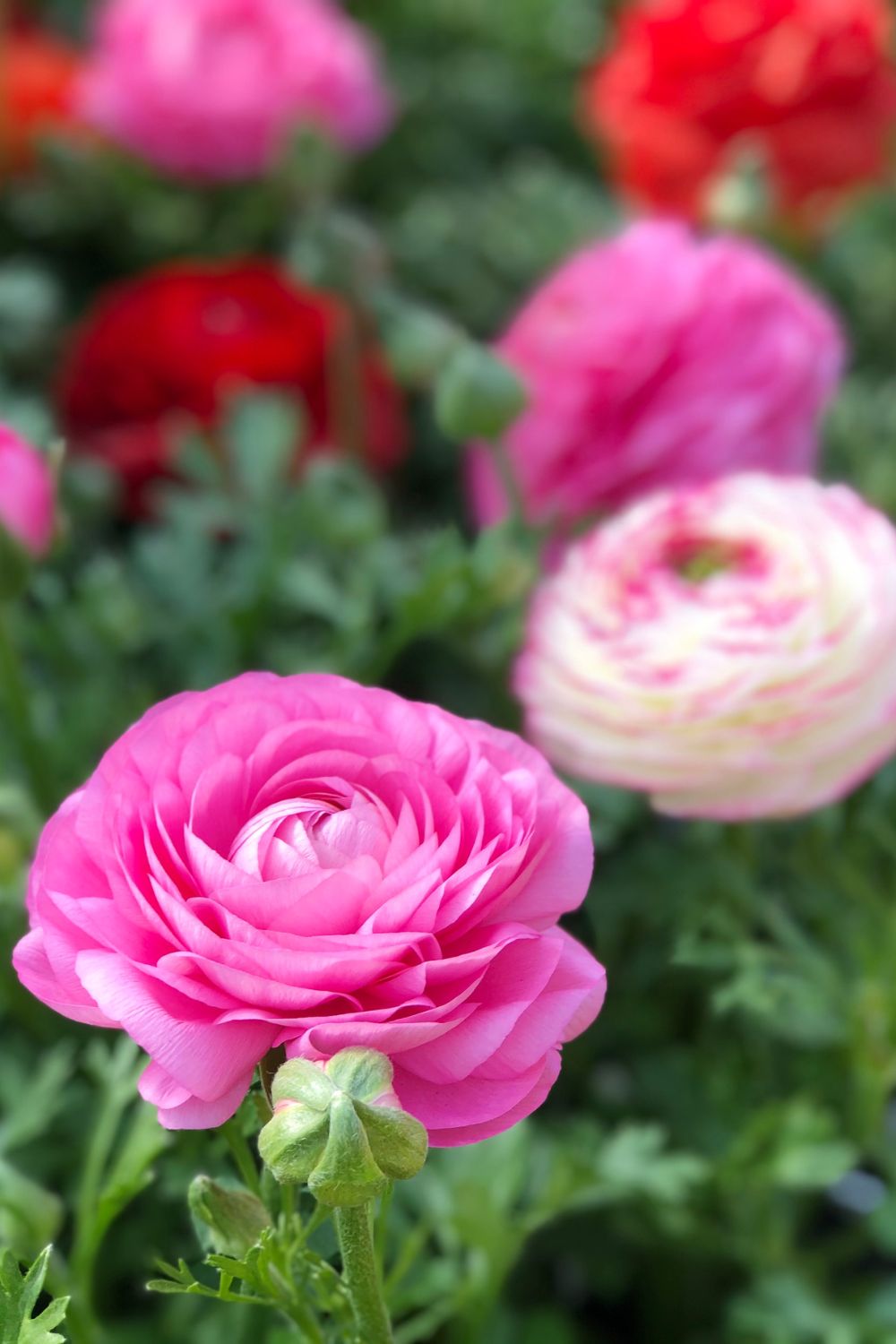
Ranunculus bulbs, often called Persian buttercups, produce layers of delicate, crepe-paper-like petals in a rainbow of colors. While traditionally a spring bloomer, when grown in pots indoors, they can brighten your home at various times of the year.
27. Anemones (Anemone coronaria)
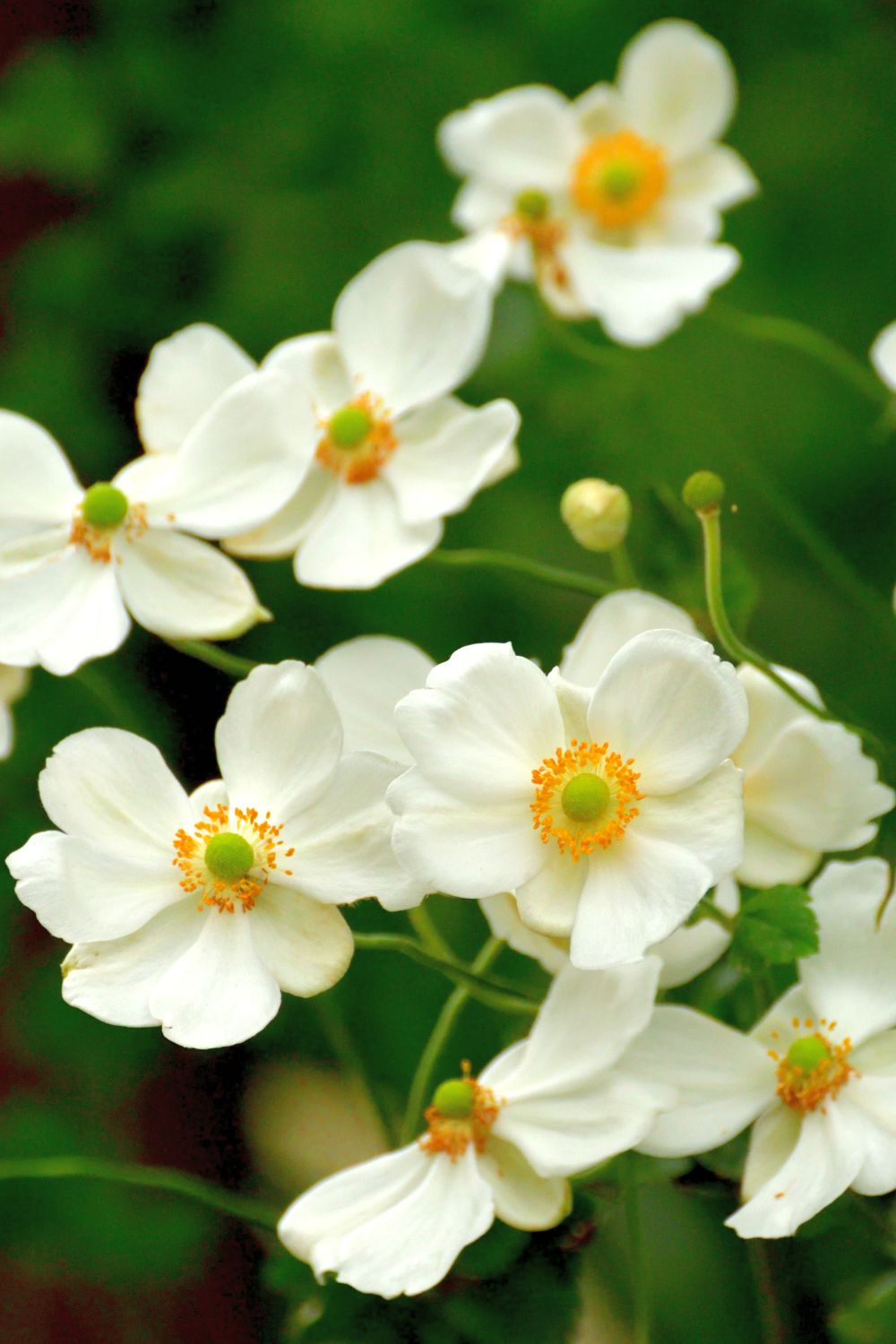
Known for their striking, poppy-like flowers and black centers, anemones can bloom from late winter through to spring or fall, depending on the planting time and location. They’re stunning in beds, borders, or as cut flowers, bringing a splash of color almost all year round.
28. Oxalis (Oxalis spp.)
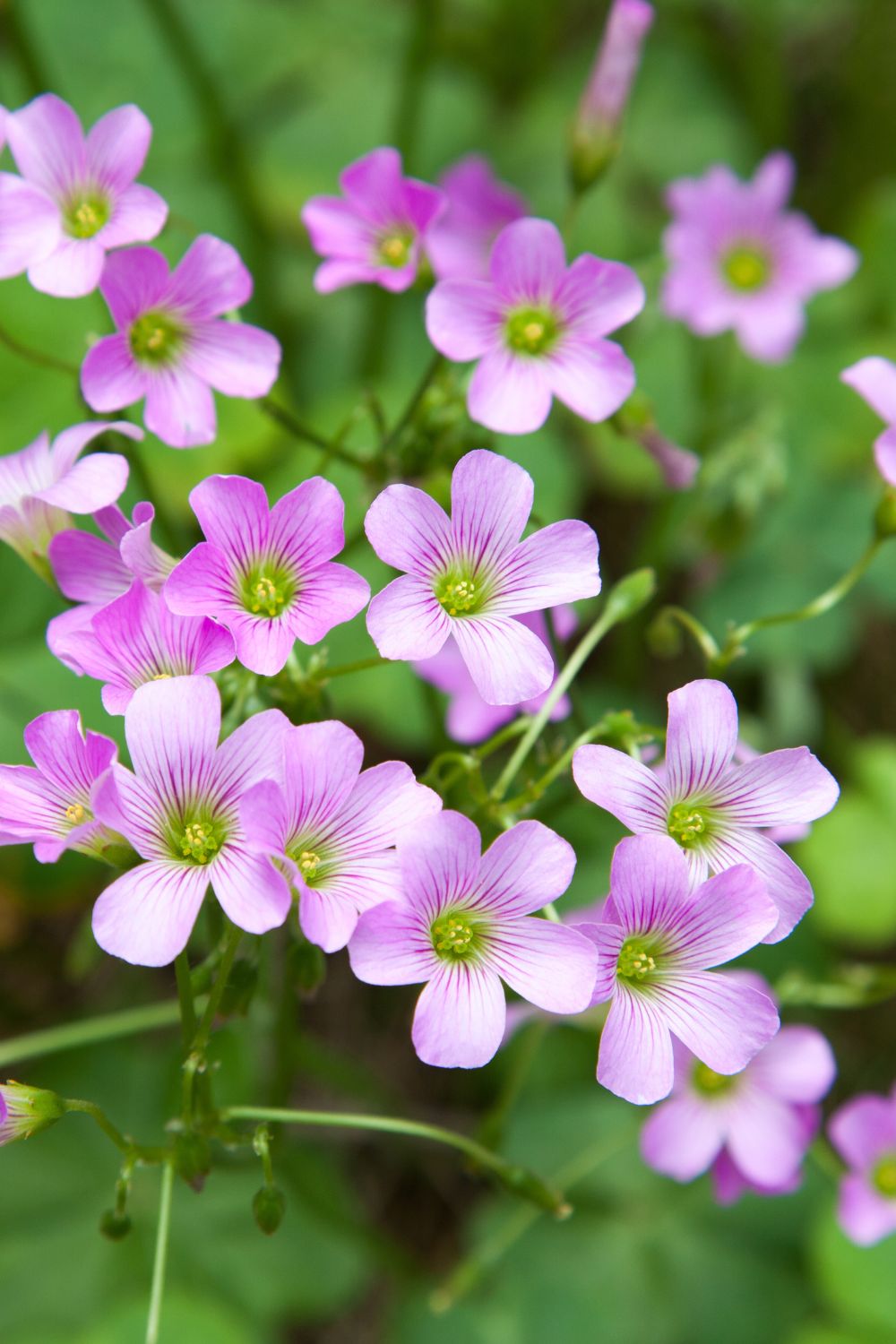
Oxalis, or wood sorrel, is often grown as a houseplant but can also thrive outdoors in warmer climates. With its clover-like leaves and delicate flowers, it can provide visual interest throughout the year, blooming in shades of white, pink, or yellow.
29. Sparaxis (Sparaxis tricolor)
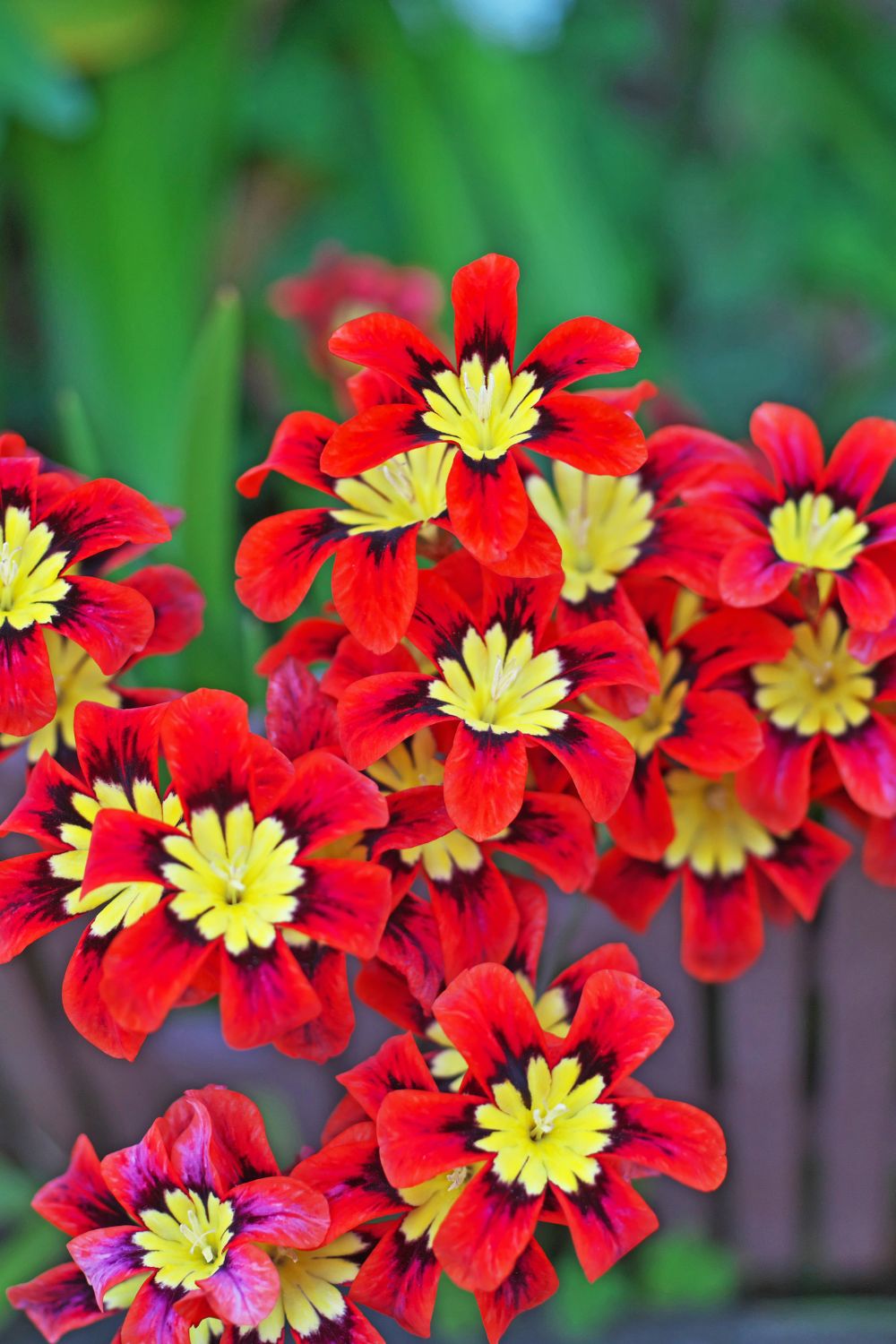
Also known as harlequin flowers, Sparaxis are celebrated for their vibrant, multi-colored blooms that appear in late spring to early summer. In milder climates or when grown indoors, they can occasionally surprise with off-season blooms.
30. Watsonia (Watsonia spp.)
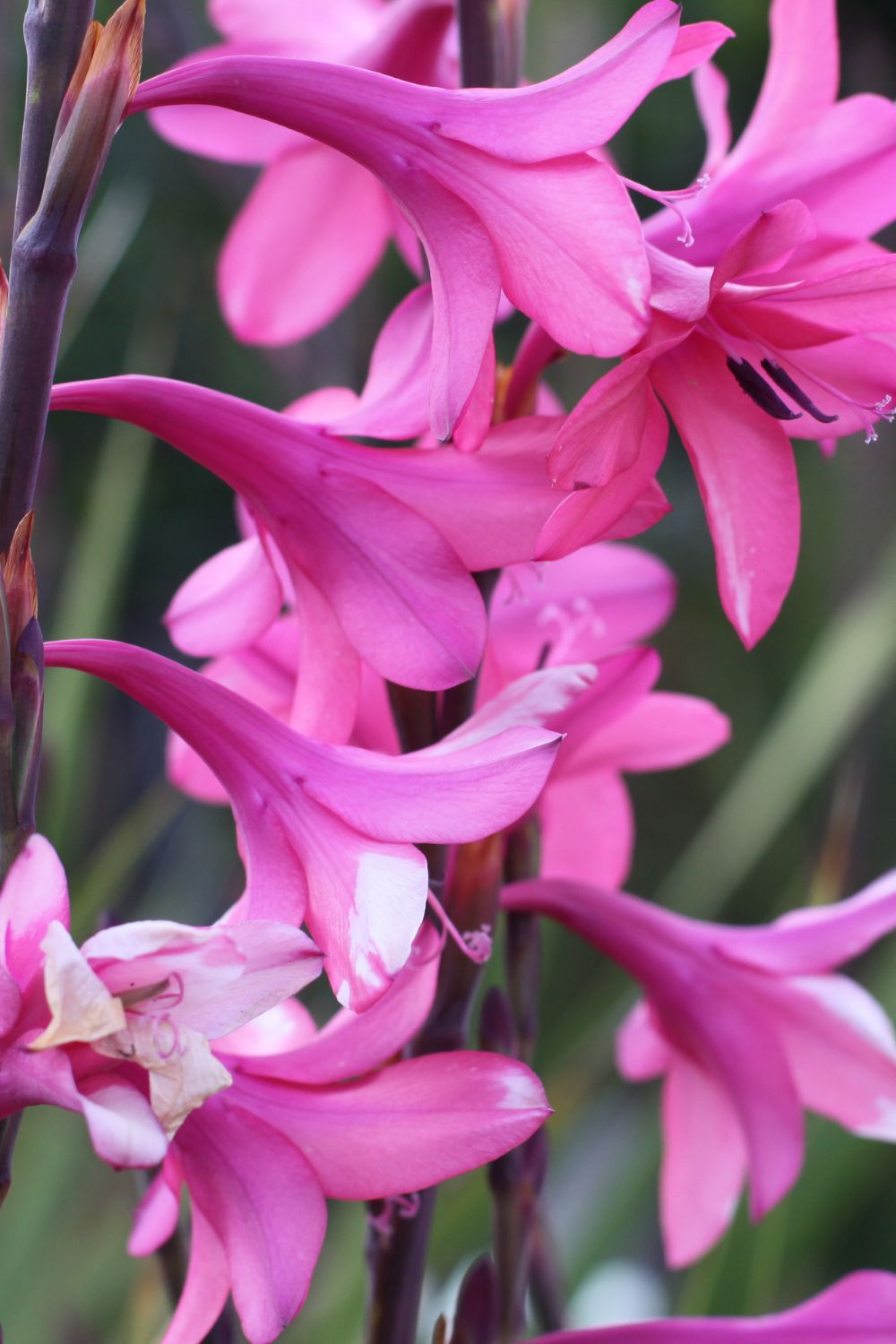
With its sword-shaped foliage and tall spikes of trumpet-shaped flowers, Watsonia is a striking addition to any garden. Typically flowering in late spring to early summer, in milder climates, or when protected, they can produce blooms at various times.
These bulb flowers, carefully selected for each season, ensure your garden remains a dynamic and vibrant space throughout the year. With a little planning and care, you can enjoy a succession of blooms that bring color, fragrance, and life, no matter the weather outside. Happy gardening!

